
2023 ANNUAL CONFERENCE | FEBRUARY 3RD-4TH | LAKE MARY, FL FMHC ENLIGHTEN, ENCOURAGE, & ELEVATE AT THE
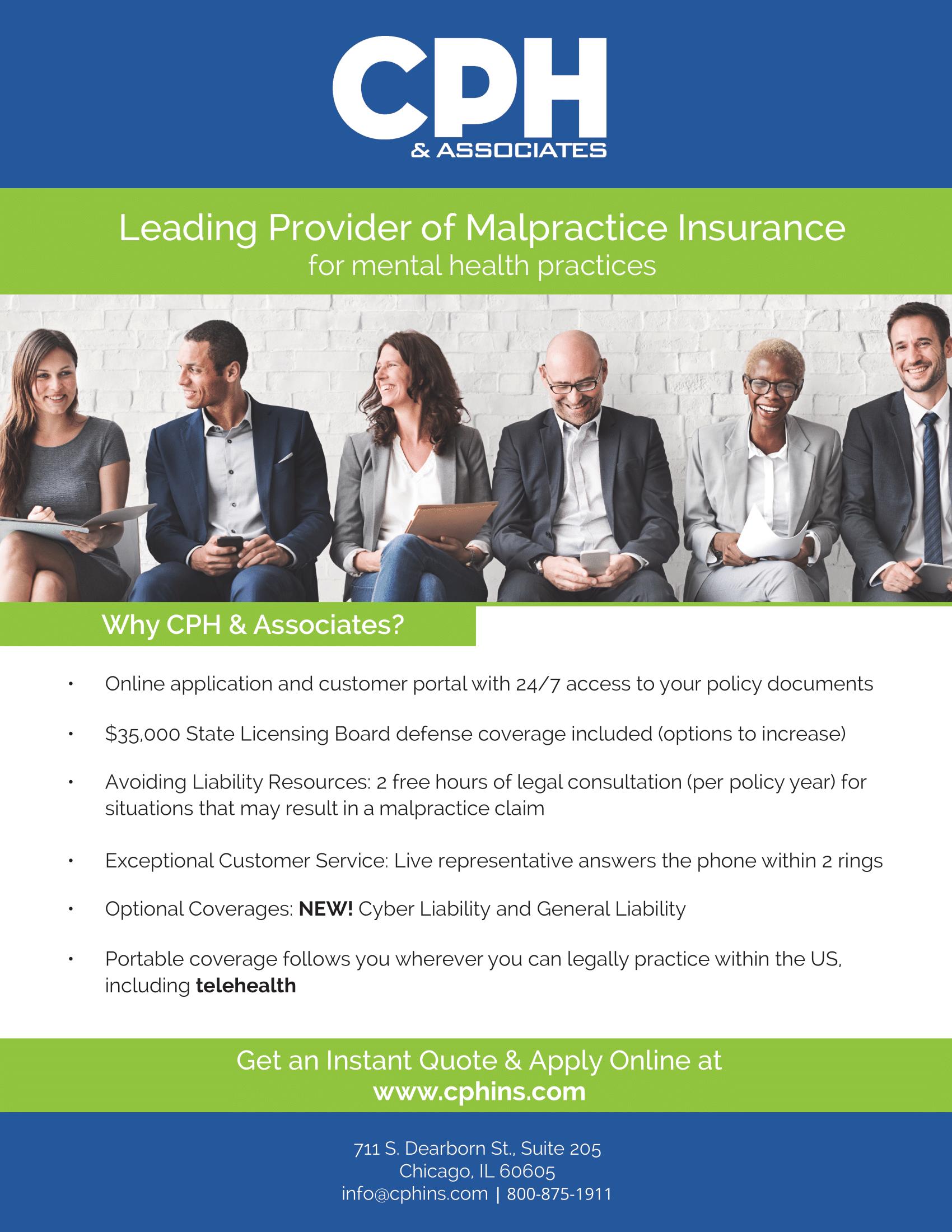

The FMHCA Team................................................................................................................................................................9 Attendee Services & Conference Policies.....................................................................................................11 COVID-19 Protocol & How to Earn Your CEUs..........................................................................................13 Pre-Conference At a Glance.....................................................................................................................................15 Conference At a Glance.........................................................................................................................................16-17 Friday Keynote 1...................................................................................................................................................................21 2022 Award Winners........................................................................................................................................................21 Friday Breakout Sessions.............................................................................................................................................22 Friday Keynote 2 (Luncheon)...................................................................................................................................26 Friday Keynote 3..................................................................................................................................................................28 Saturday Keynote 1...........................................................................................................................................................29 Saturday Breakout Sessions.....................................................................................................................................30 Saturday Keynote 2 (Luncheon) 33 Conference Sponsors 35 TABLE OF CONTENTS Welcome to the 2023 Annual FMHCA Conference! In the following pages Welcome to the 2023 Annual FMHCA Conference! In the following pages you will find important information about the conference as well as the you will find important information about the conference as well as the schedule of the workshops. Our goal is for you to be enlightened and schedule of the workshops. Our goal is for you to be enlightened and encouraged while you enjoy conference workshops and network encouraged while you enjoy conference workshops and network amongst your peers. amongst your peers. If you have any questions, please come see us in If you have any questions, please come see us in Salon F Salon F

Greetings and welcome to FMHCA’s 2023 conference! We are excited to be back 100% in-person this year. It is terrific to see each of you! I would like to extend a special welcome to our colleagues who experienced devastation from Hurricane Ian We hope this conference is a respite for each of you, as well as a chance to recharge, relax and connect with your colleagues. Your FMHCA team has been hard at work on this year ’ s conference since last year ’ s conference ended We hope you enjoy the diverse range of offerings including the opportunity to take all of the required courses for licensure in one swoop. We also hope you enjoy the connection with our community of colleagues. In our surveys these past several years, “connection” and “community” are some of the top requests we received. We hope you feel very connected here! Please feel free to stop me anytime and say “hello ” I look forward to meeting you!

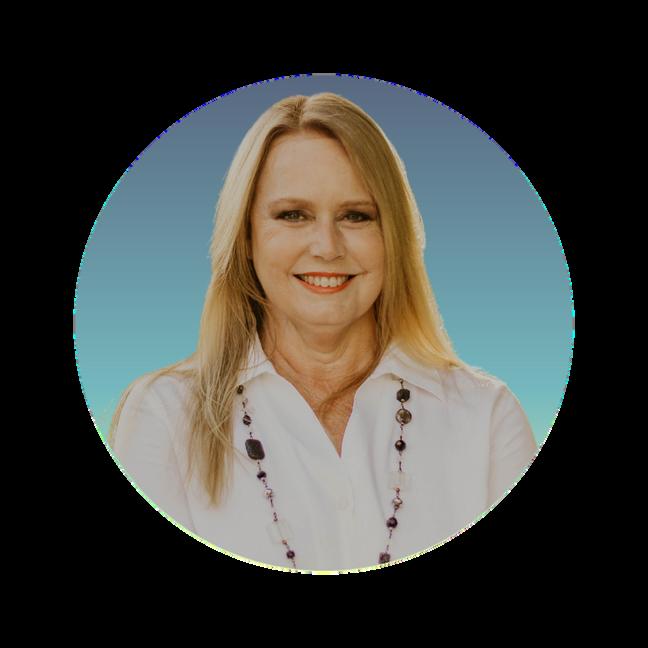
LauraPeddie-Bravo 5 224 ANNUALFMHCACONFERENCE FEBRUARY2-3LAKEMARY,FL 50% OFF SALE $630 $315 $530 $265 $390 $290 $250 $150 $75 Engaging minds since 1999! Join us back in Lake Mary for our 2024 Annual FMHCA Conference Return home with up to 29 5* CE credits earned over 3 days of learning! (February 1st-3rd) *Attendees have access to up to 21 5 CE credits in General Conference Sessions (2/22/3) and up to an additional 8 CE credits in the Pre-Conference Sessions on 2/1 (Additional Fees Apply) MemberFullConference Registration Non-MemberFull ConferenceRegistration Non-Member1Day ConferenceRegistration GraduateStudentFull ConferenceRegistration Member1Day ConferenceRegistration GraduateStudent1Day ConferenceRegistration $195 $145 $125 LimitedQuantityOffering Availableonline&inSalonFbetweenFebruary3-42023 NoRefunds
Sincerely, Laura Peddie-Bravo, MA, LMHC, NCC FMHCA President
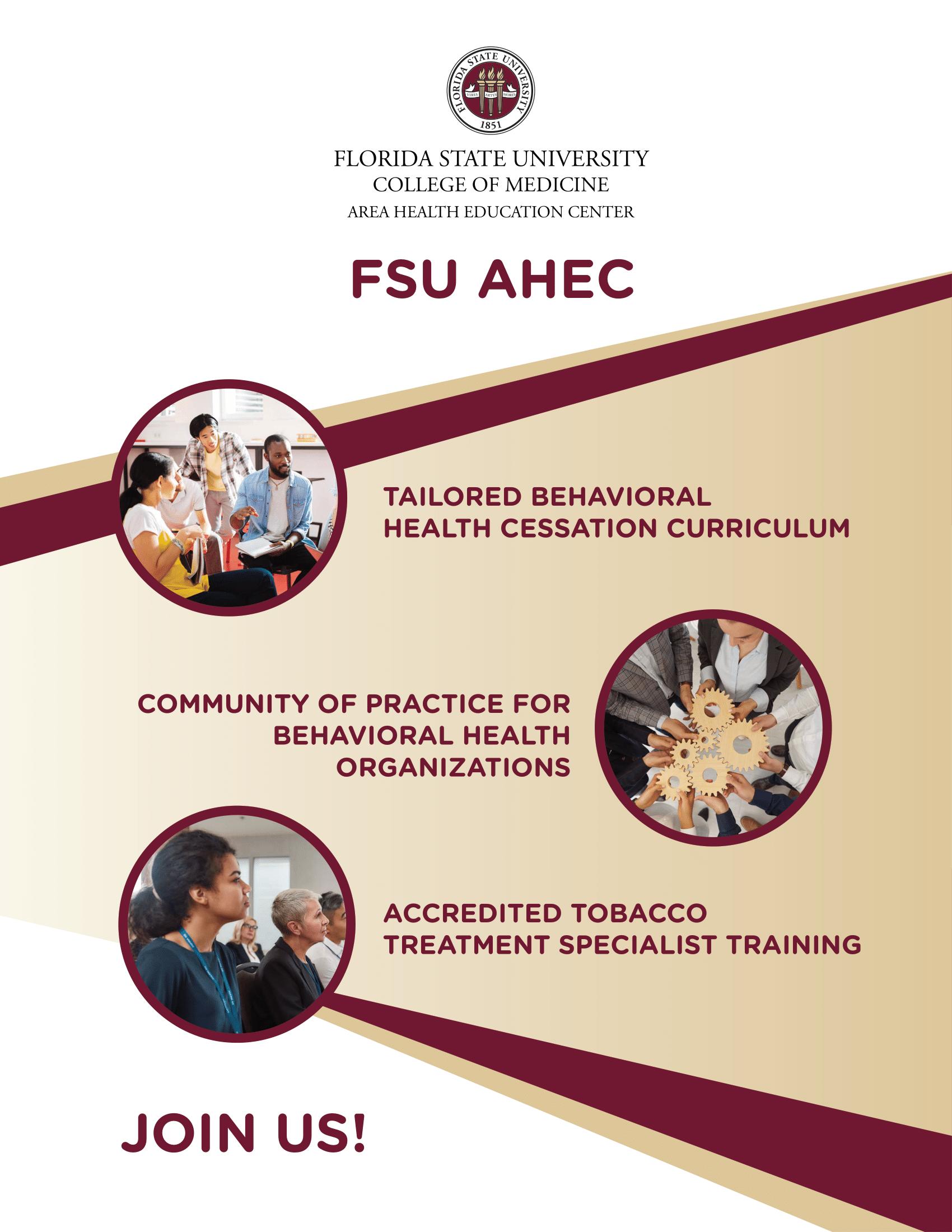
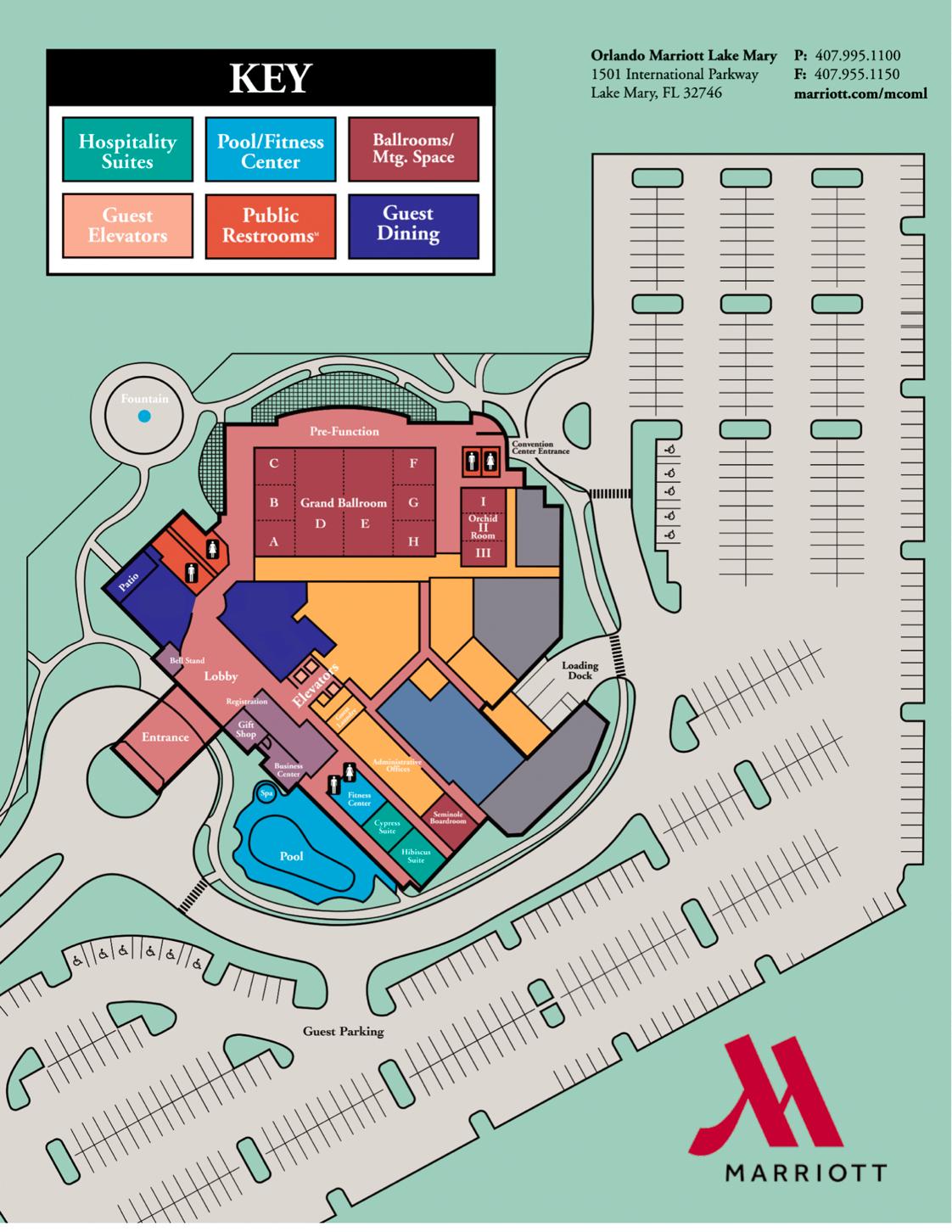
7
FMHCA'S MISSION STATEMENT
The Florida Mental Health Counselors Association (FMHCA) is the State Chapter of the American Mental Health Counselors Association (AMHCA). FMHCA is the only organization dedicated exclusively to meeting the professional needs of Florida’s Licensed Mental Health Counselors.
The mission of the FMHCA is to advance the profession of clinical mental health counseling through intentional and strength-based advocacy, networking, professional development, legislative efforts, public education, and the promotion of positive mental health for our communities
Its sole purpose is to promote the profession of mental health counseling and the needs of our members as well as:
Provide a system for the exchange of professional information among mental health counselors through newsletters, journals or other scientific, educational and/or professional materials
Provide professional development programs for mental health counselors to update and enhance clinical competencies
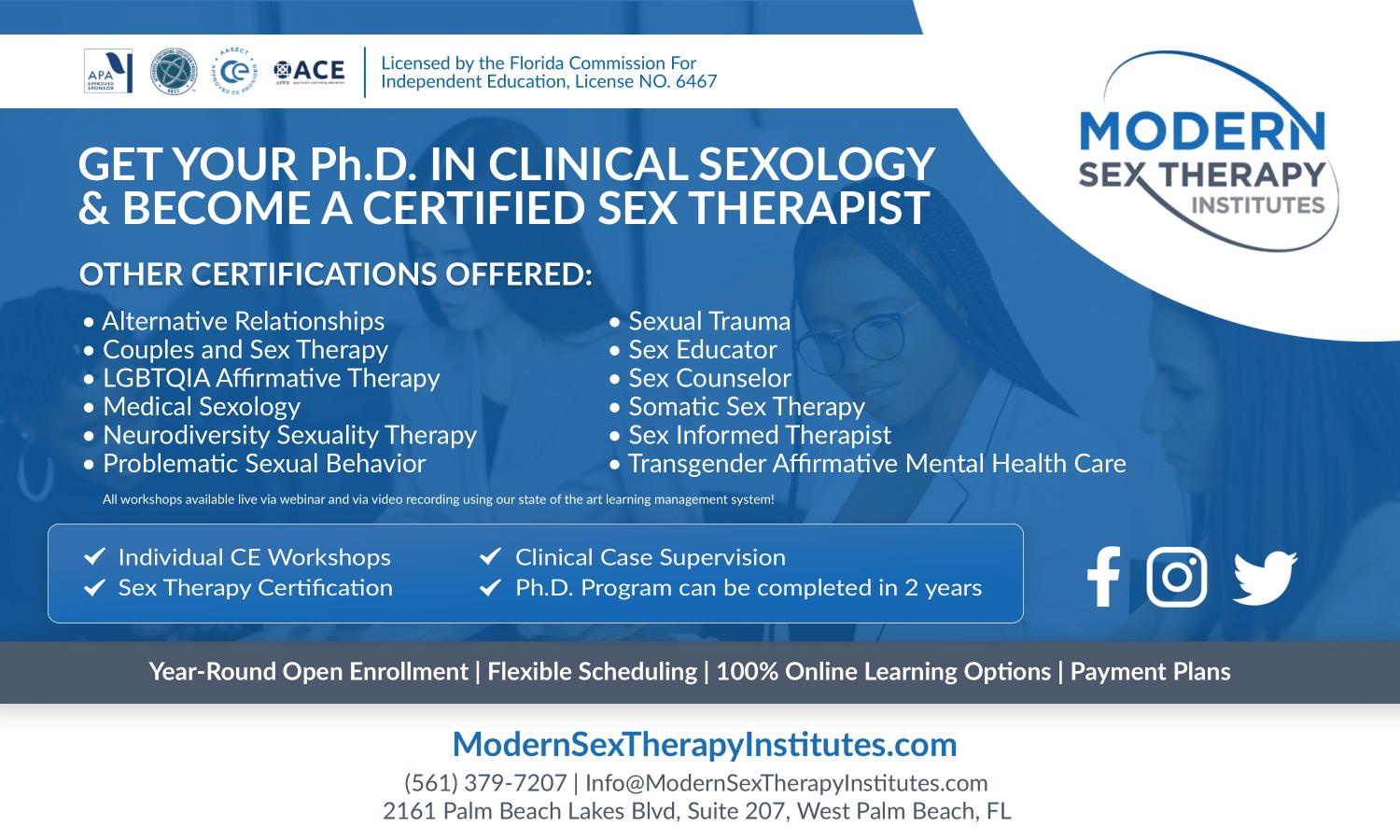
Promote legislation that recognizes and advances the profession of mental health counseling
Provide a public forum for mental health counselors to advocate for the social and emotional welfare of clients
Promote positive relations with mental health counselors and other mental health practitioners in all work settings to enhance the profession of mental health counseling
Contribute to the establishment and maintenance of minimum training standards for mental health counselors
Promote scientific research and inquiry into mental health concerns
Provide liaison on the state level with other professional organizations to promote the advancement of the mental health profession
Provide the public with information concerning the competencies and professional services of mental health counselors
Promote equitable licensure standards for mental health counselors through the state legislature
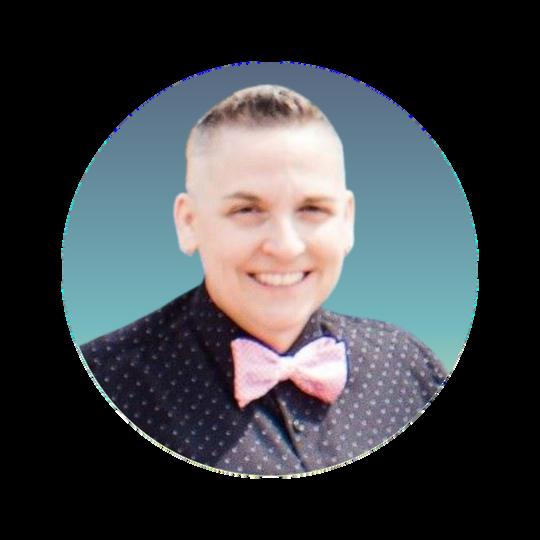
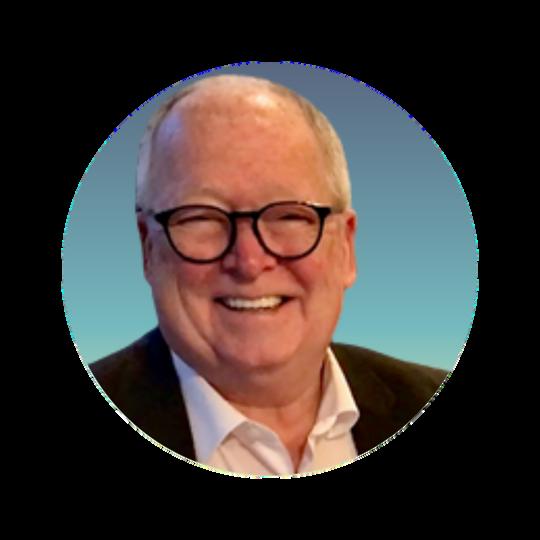


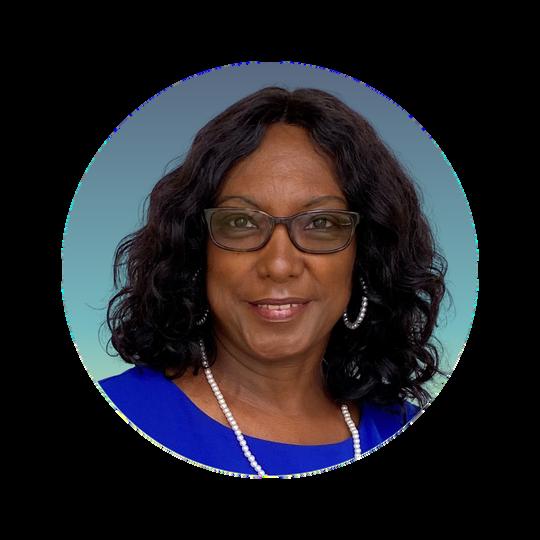
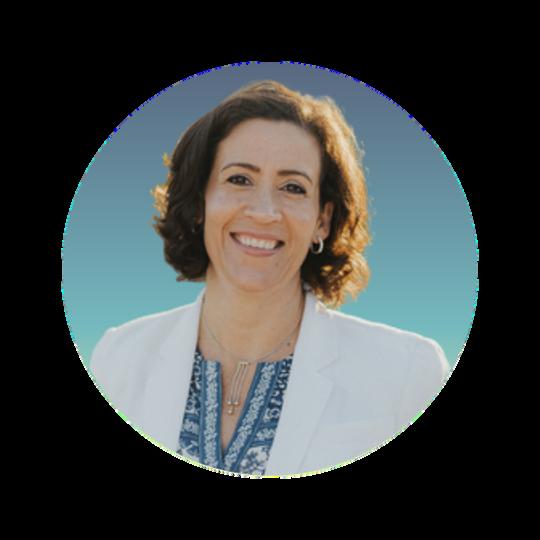
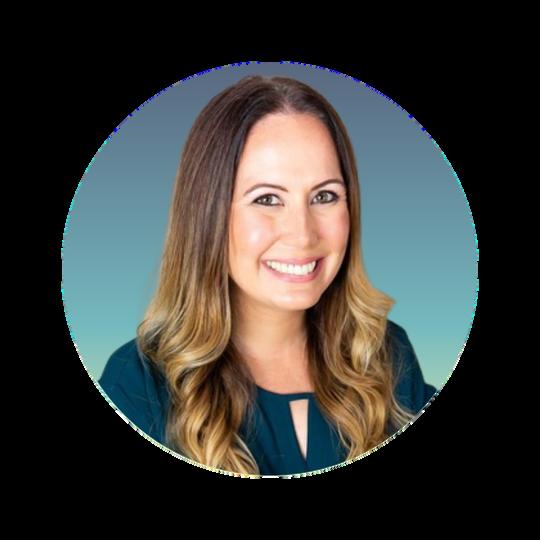
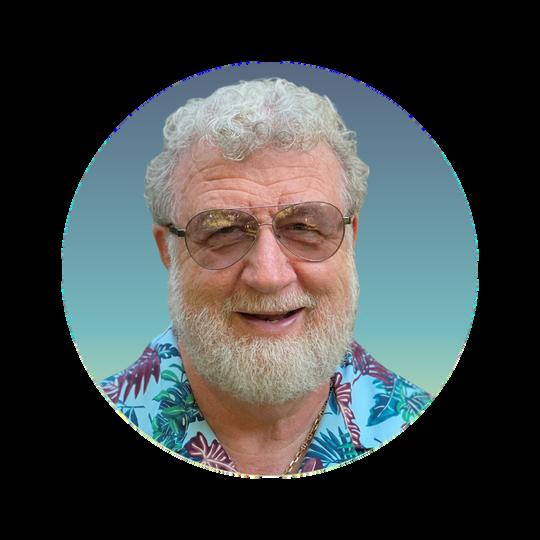


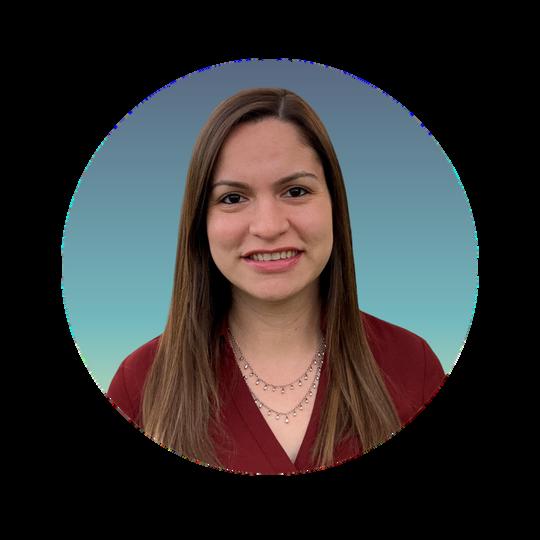


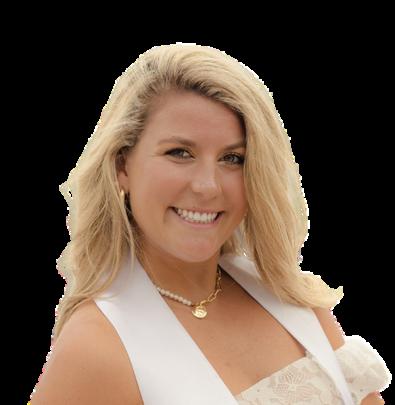
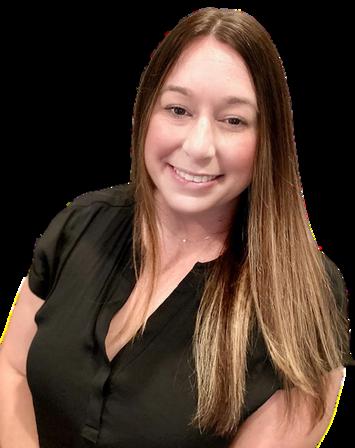
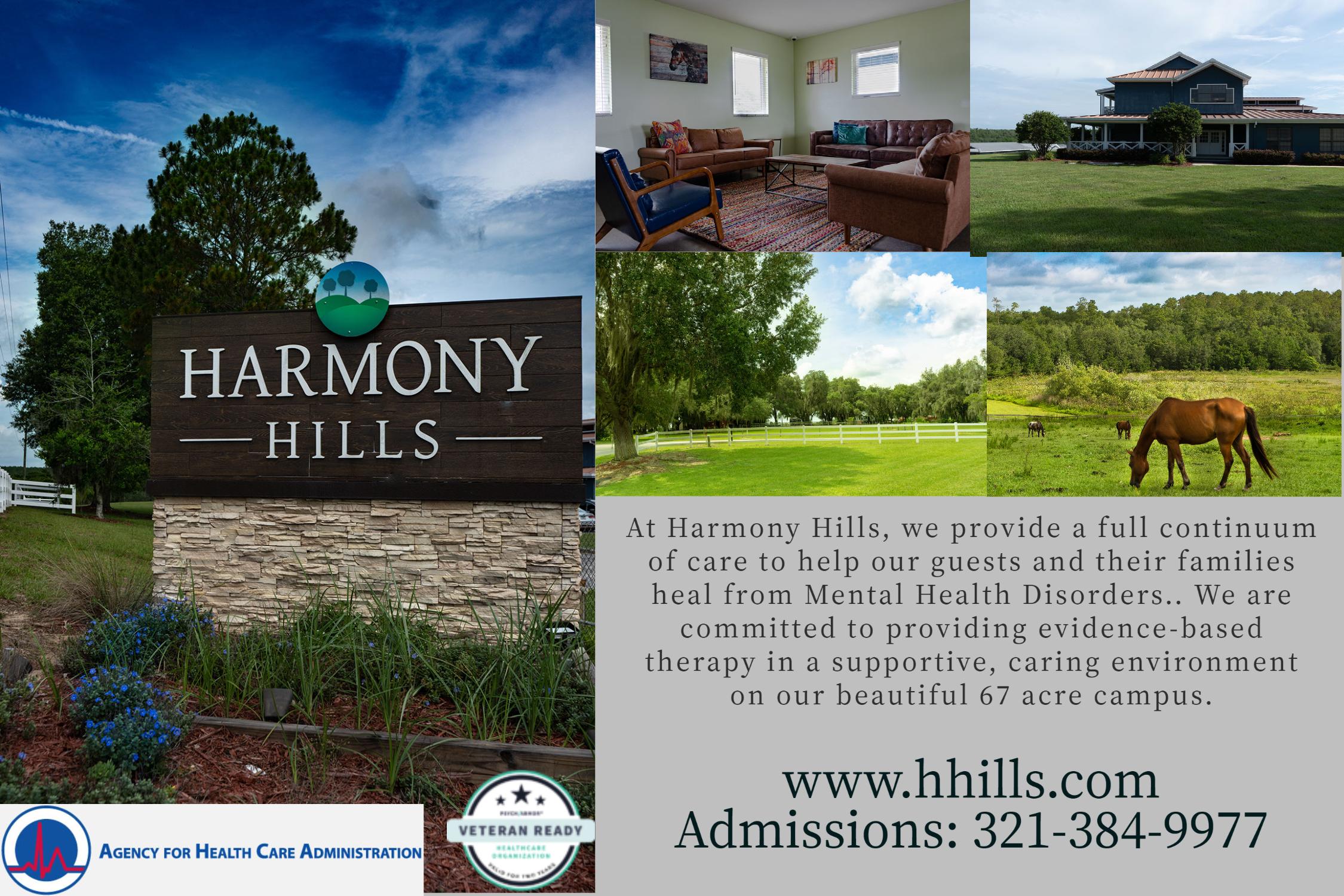
THE FMHCA TEAM
PARLIAMENTARIAN
NEREGIONALDIRECTOR NWREGIONALDIRECTOR
Michael Holler
PRESIDENT
Laura Peddie- Bravo
PRESIDENT-ELECT
PAST-PRESIDENT
Dr. Kathie Erwin
Dr Deirdra Sanders-Burnett
TREASURER
Dr Grace Marin
SECRETARY
Amanda Landry
Maria Giuliana
SEREGIONALDIRECTOR
Joe Skelly
EXECUTIVE DIRECTOR
Liza Piekarsky- Brown
E XECUTIVEADMINISTRATO R
Diana Huambachano
M A R KETING&OUTREACHCOO R .D
Laura Giraldo
SOCIALMEDIACOORD .
A DMIN TRATIVEAS TAN T SWREGIONALDIRECTOR 9
Naomi Rodriguez
Madison Borgel Samantha Samarelli
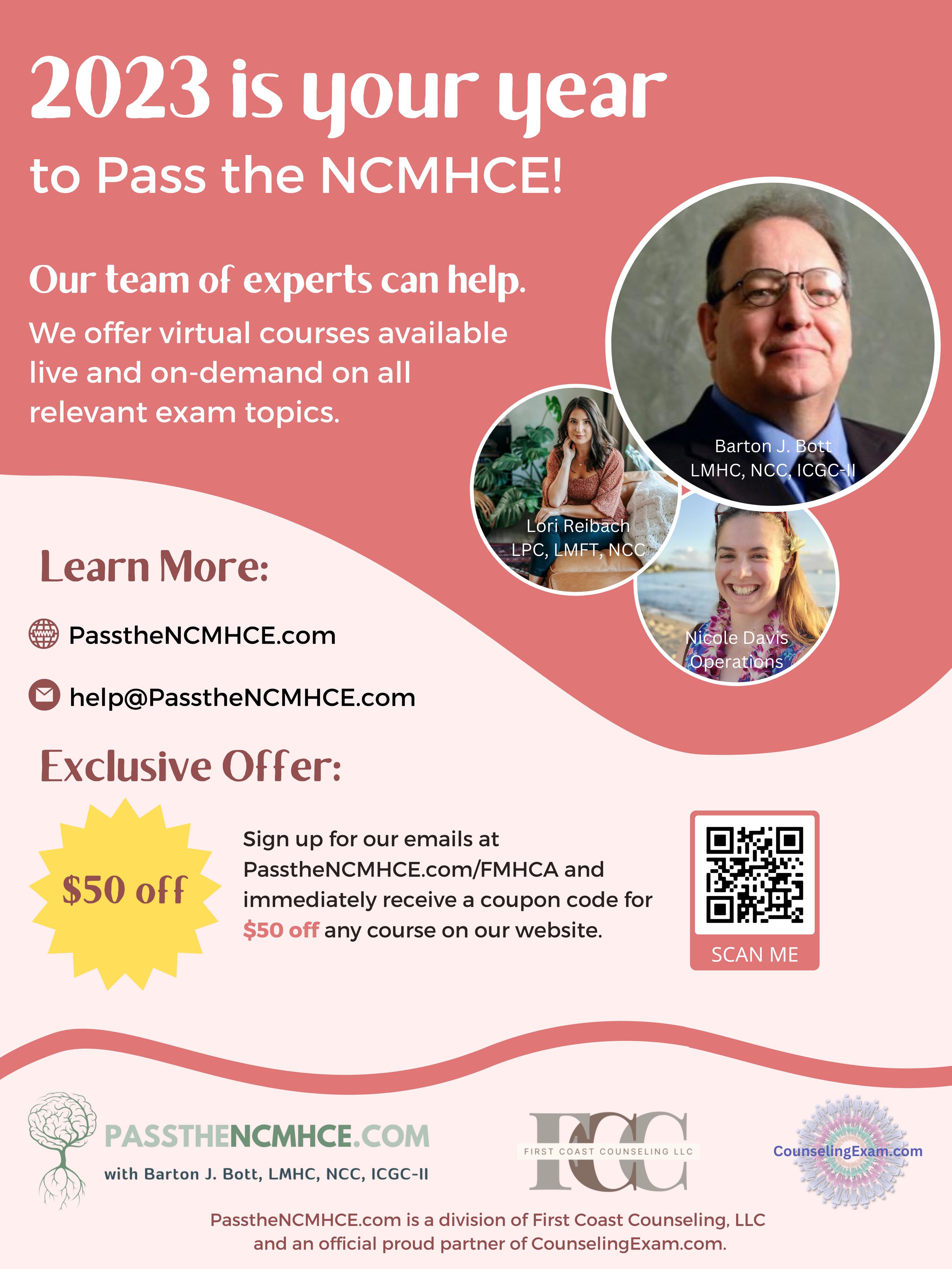
ATTENDEE SERVICES & CONFERENCE POLICIES
BADGES AND ADMITTANCE
Official FMHCA Conference badges are your admission to all functions associated with our registration and must be worn at all conference events. Only individuals registered and wearing the appropriate badges may attend events.
REGISTRATION/ BADGE PICK-UP
Visit Conference Kiosks in Salon F during the time slots listed below for badge corrections, on-site registration, & badge pick-up
Pre-Conference:
Wednesday (2/1) from 3:00 pm- 5:00 pm Thursday (2/2) from 7:00 am- 8:30 am
Main Conference:
Thursday (2/2) 11:30 am- 4:00 pm Friday (2/3) 7:00 am- 10:00 am Saturday (2/4) 7:00 am- 10:00 am
EXHIBIT HALL
Please visit our exhibitors and sponsors Friday and Saturday from 7:00 am-6:30 pm located throughout the ballroom meeting spaces.
SPEAKER CLAUSE
The planners and sponsors of this conference assume no responsibility for the comments expressed by the speakers/ presenters, nor do they accept responsibility for the content or reprinting of any materials used or handed out during the conference
CELL PHONE POLICY
In consideration of all our attendees, we request that cell phones, pagers, etc. either be turned off or set to silent mode during all conference sessions and breakouts.
SMOKING POLICY
Marriott is a smoke-free environment Designated smoking areas are located outside the side door and front door exits
IN CASE OF EMERGENCY
There is a house phone located in every meeting room Dial "0" to be connected to the hotel operator
Room Service is available
Food and Beverage Outlets Service Hours: Espresso Lounge
Monday - Friday: 6:30 AM - 11:00 AM
Saturday - Sunday: 7:00 AM - 11:00 AM 1501 Kitchen & Bar: Breakfast:
Monday - Friday: 6:30 AM - 10:30 AM Saturday - Sunday: 7:00 AM - 11:00 AM Lunch: Monday - Friday: 11:30 AM - 2:00 PM Saturday - Sunday: 12:00 PM - 2:00 PM
Dinner: Every Day: 4:00 PM - 11:00 PM
Outdoor heated pool is open daily from 7:00 am –11:00 pm
24-Hour Fitness Center is open
ORLANDO MARRIOTT LAKE MARY SAFETY PROTOCOLS AND AMENITIES UPDATE: LUGGAGE STORAGE
Local Area Restaurants and shopping are open Guestrooms are serviced daily as long as the "Do Not Disturb" sign is not left on the door
Should guests need additional towels, toilet paper, etc. please call the front desk for assistance No Hotel shuttle is currently operating
Upon checking out of the hotel, you may check your bag(s) with the bellman
ATM LOCATION
The ATM machine is located on the first floor by the front desk.
FMHCA GRIEVANCE STATEMENT
All grievances and inquiries will be handled on an individual basis and evaluated on their merit Individuals, companies, and organizations wishing to submit a Grievance Form can do so by navigating to FMHCAorg
ADVERTISEMENTS IN CONFERENCE BROCHURE
Advertisements placed in conference brochure do not represent official FMHCA policy or position and the acceptance of advertising does not constitute endorsement or approval by FMHCA of any advertised service or product
11
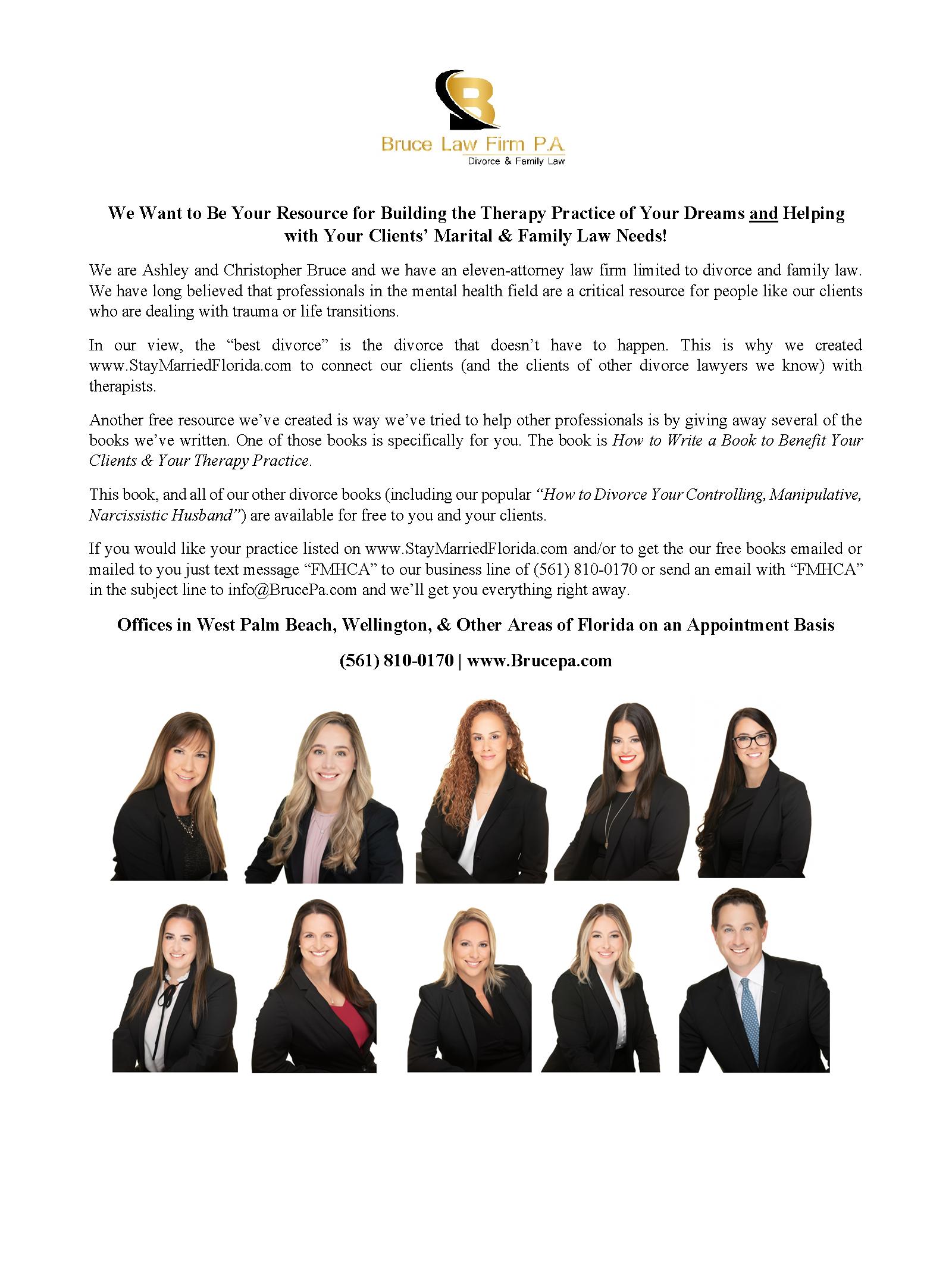
This conference is approved by the Florida Board of Clinical Social Work, Marriage and Family Therapy, and Mental Health Counseling (LCSW, LMFT, LMHC) FMHCA CE Broker #: 50-748; Conference Tracking #: 20-973900 FMHCA has been approved by NBCC as an approved by NBCC as an Approved Continuing Education Provider, ACEP No 2058 Programs that do not qualify for NBCC credit are clearly identified FMHCA is solely responsible for all aspects of the programs
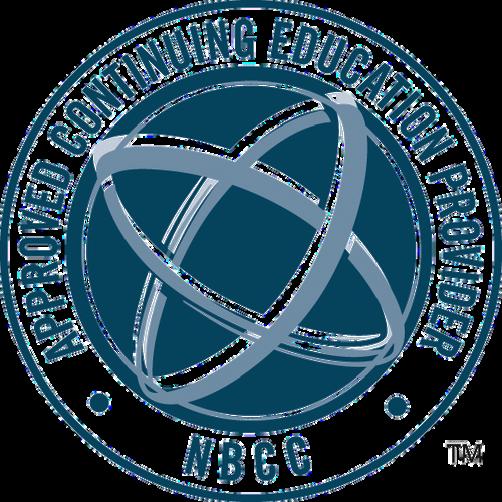
COVID-19 PROTOCOL
FMHCA has taken extra measures to ensure we are following all CDC recommended safety guidelines for gatherings and we ask you to help us in making sure we are all as safe as possible
Safety Protocols Include:
Following all CDC guidelines for gatherings which include promoting healthy behaviors such as hand hygiene Maintaining a healthy environment and maintaining healthy operations by implementing cleaning and disinfecting protocols of microphones, tablets used for check-in and other widely used surfaces
Hand sanitizer will be available at every check-in station
Sticker system indicating what level of contact people are comfortable with.
Red- no contact
Yellow- being cautious. Elbows and fist pumps are okay
Green-Hugs, high fives, and handshakes welcome
We will promote the CDC recommendation to be vaccinated for the event (vaccines will not be a requirement, we encourage attendees to follow CDC guidelines which include COVID-19 vaccination)
HOW TO EARN YOUR CEUS
STEP ONE:
Sign into Conference Kiosk; legibly sign your name and confirm your license number
STEP TWO: Complete the Conference Evaluation This is an electronic form that FMHCA will use to report your CEUs to CE Broker (so be sure you have answered the feedback questions for each breakout session you attended)
Evaluations will be completed electronically and can be found by visiting wwwFMHCAorg
Evaluations should be completed collectively at the end of each day For example: there will be one evaluation survey for Friday 2/3 and another evaluation for Saturday 2/4 You will complete your evaluation at the end of the day Friday and/ or Saturday based on your registration level
If you attend a session for Domestic Violence, Medical Errors, or Ethics, there will be a separate sign-in sheet and evaluation completed at the end of the session
STEP THREE: Submit completed evaluations electronically once completed
CEUs will be reported to CE Broker by Friday, February 24th based on your completion of evaluation(s)

Certificates will be issued via email by Friday, February 24th based on your completion of evaluation(s).
Questions? Visit us at the registration table in Salon F, talk with a conference staff member, or email FMHCA at office@flmhcaorg
FMHCA is a chapter of the American Mental Health Counselors Association and is the only organization working exclusively for Licensed Mental Health Counselors' in Florida
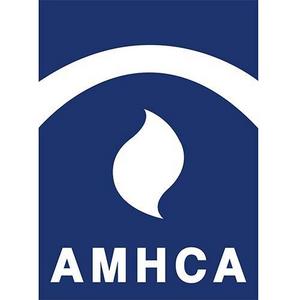
13
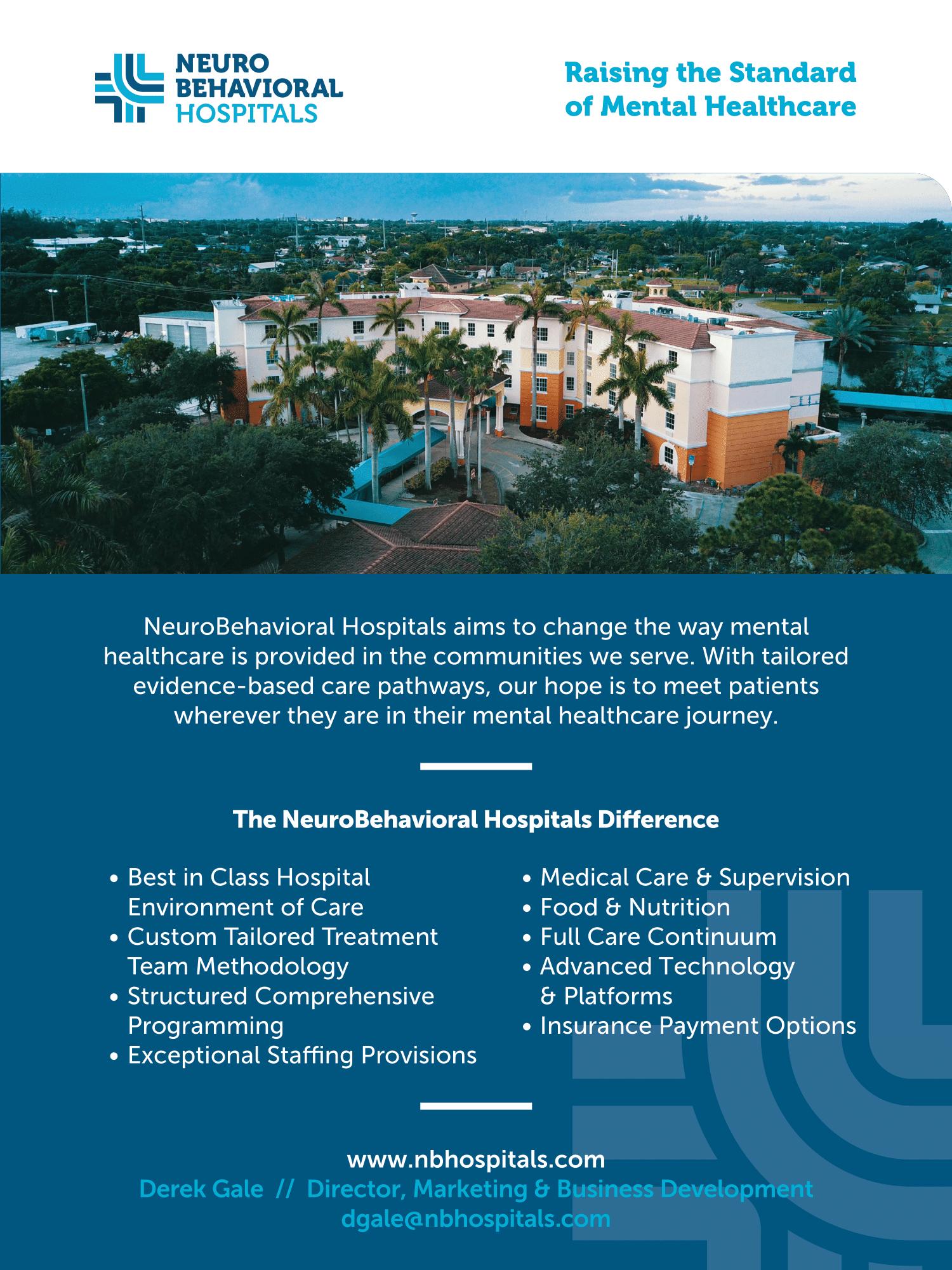
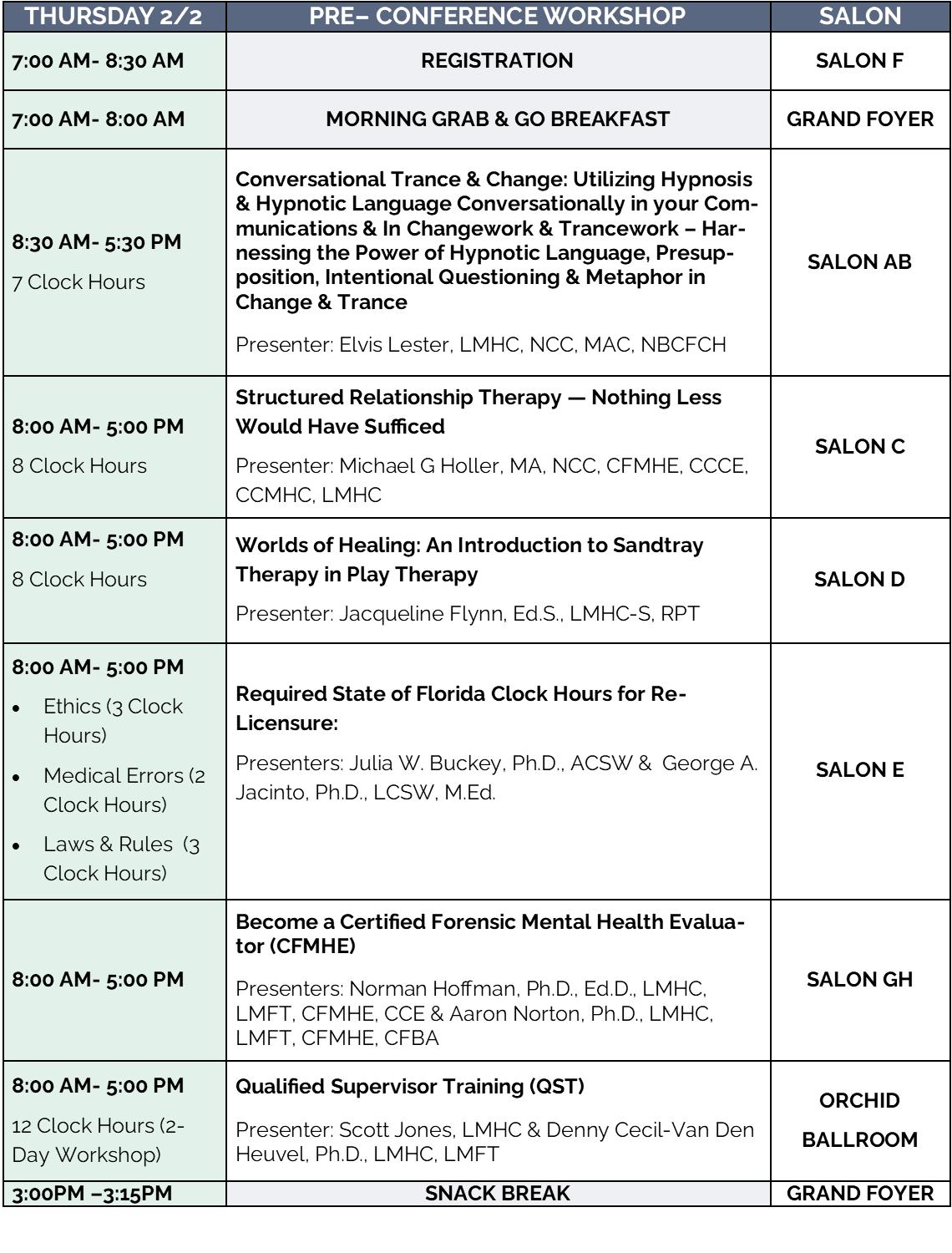
15
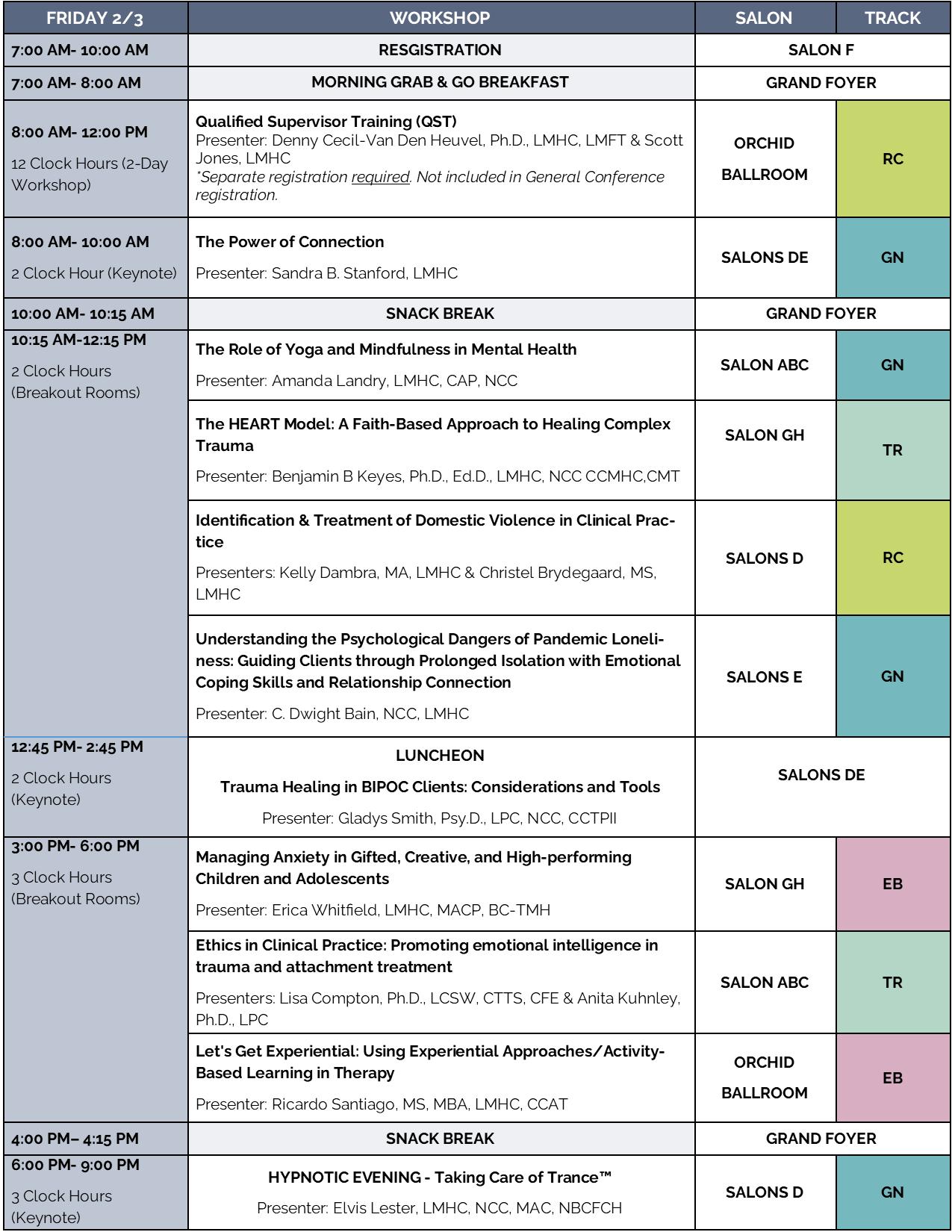
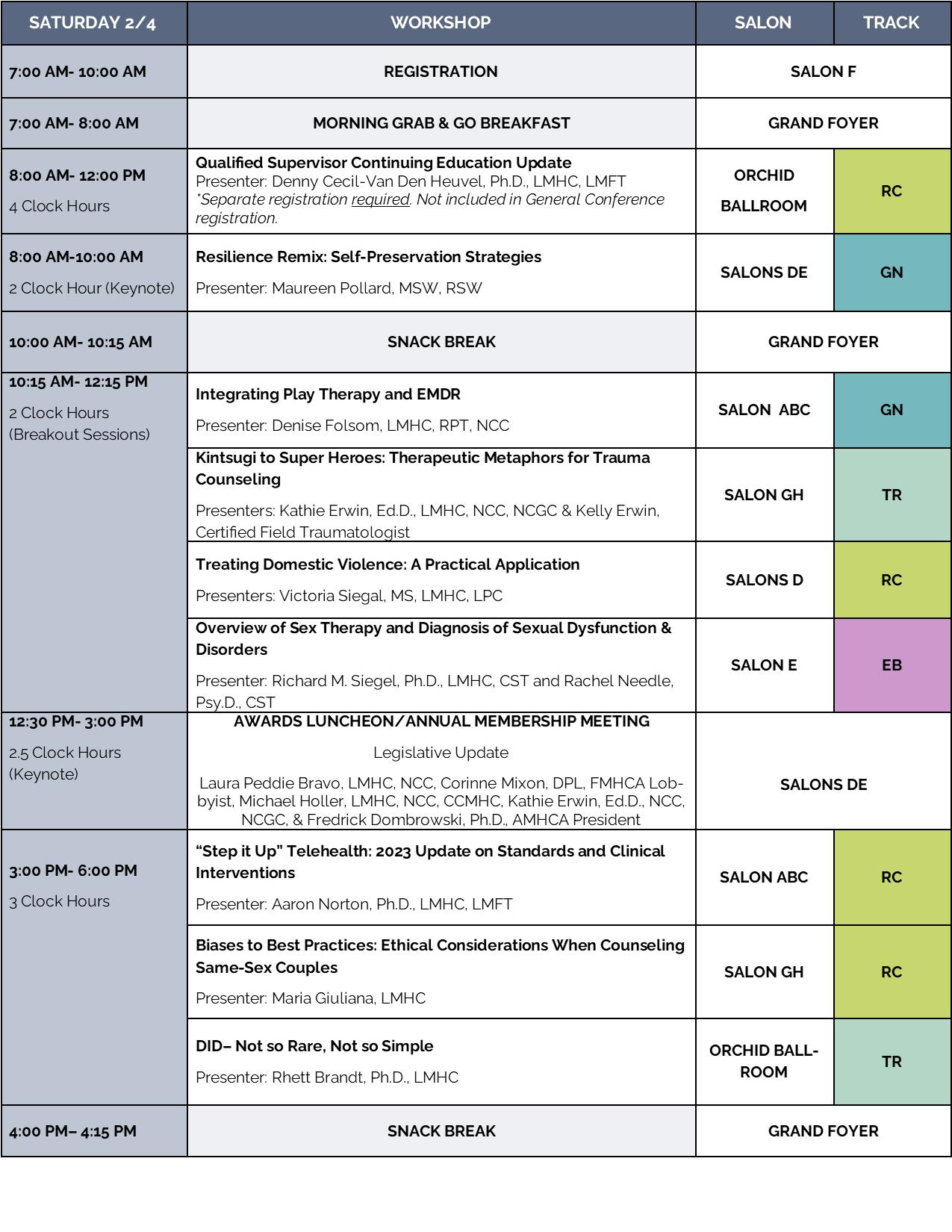
GN: GENERAL/ OTHER EB: EVIDENCE-BASED TR: GREEN CROSS TRAUMA RC: REQUIRED CEUS 17
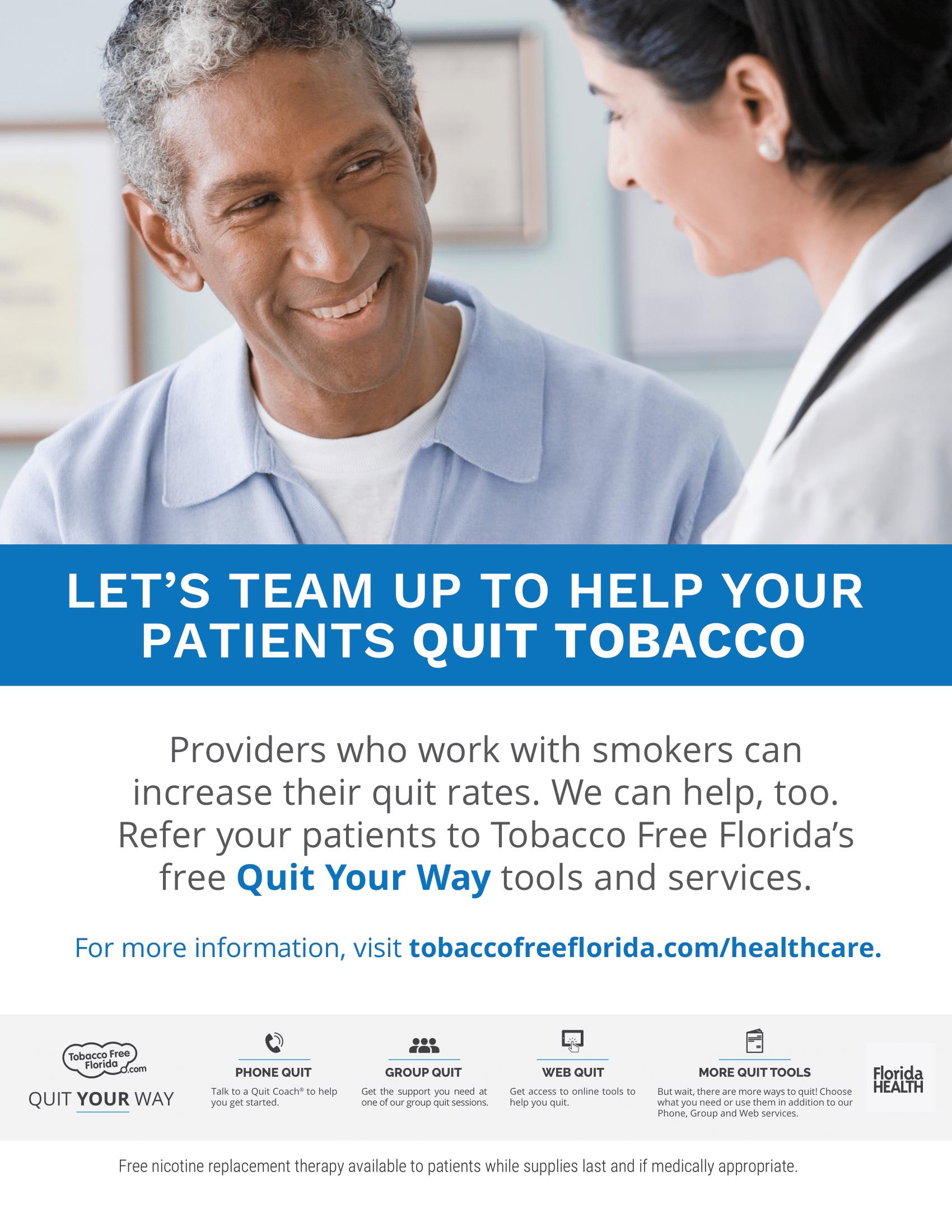
Welcome Back to Our FMHCA Conference!
That thought led me to singing the classic Welcome Back Kotter theme; “And what could ever lead you back here where we need you?”© Little did John Sebastian know when he wrote this song that it had another application! Counselors – you are desperately needed for all age groups even more so since pandemic isolation. Exhibitors – you can enlighten us to programs and materials that will benefit our clients. Counselor Educators – you are essential to equip the next generation of mental health counselors. Students – we offer encouragement as you prepare to fill our ranks for the future
We are all ESSENTIAL to the well-being of our community and our society. Come ready to soak up ideas, research information, network with friends and meet new colleagues. These days together are about more than CEs – its about getting recharged to give the best to our profession
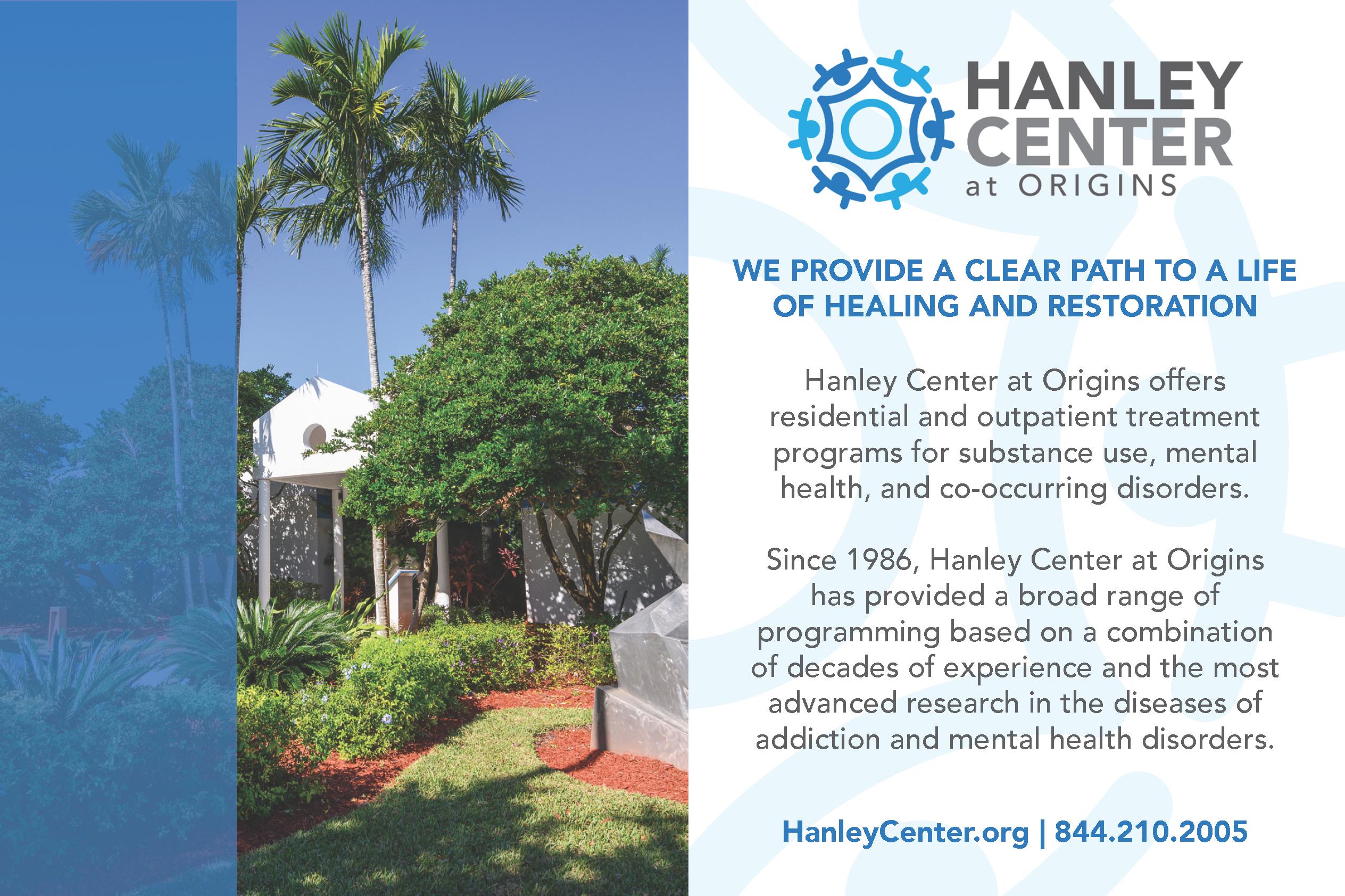
Best,
Dr.KathieErwin
Kathie Erwin, Ed.D., LMHC, NCC, NCGC, AMHCA Diplomate FMHCA President-Elect

19
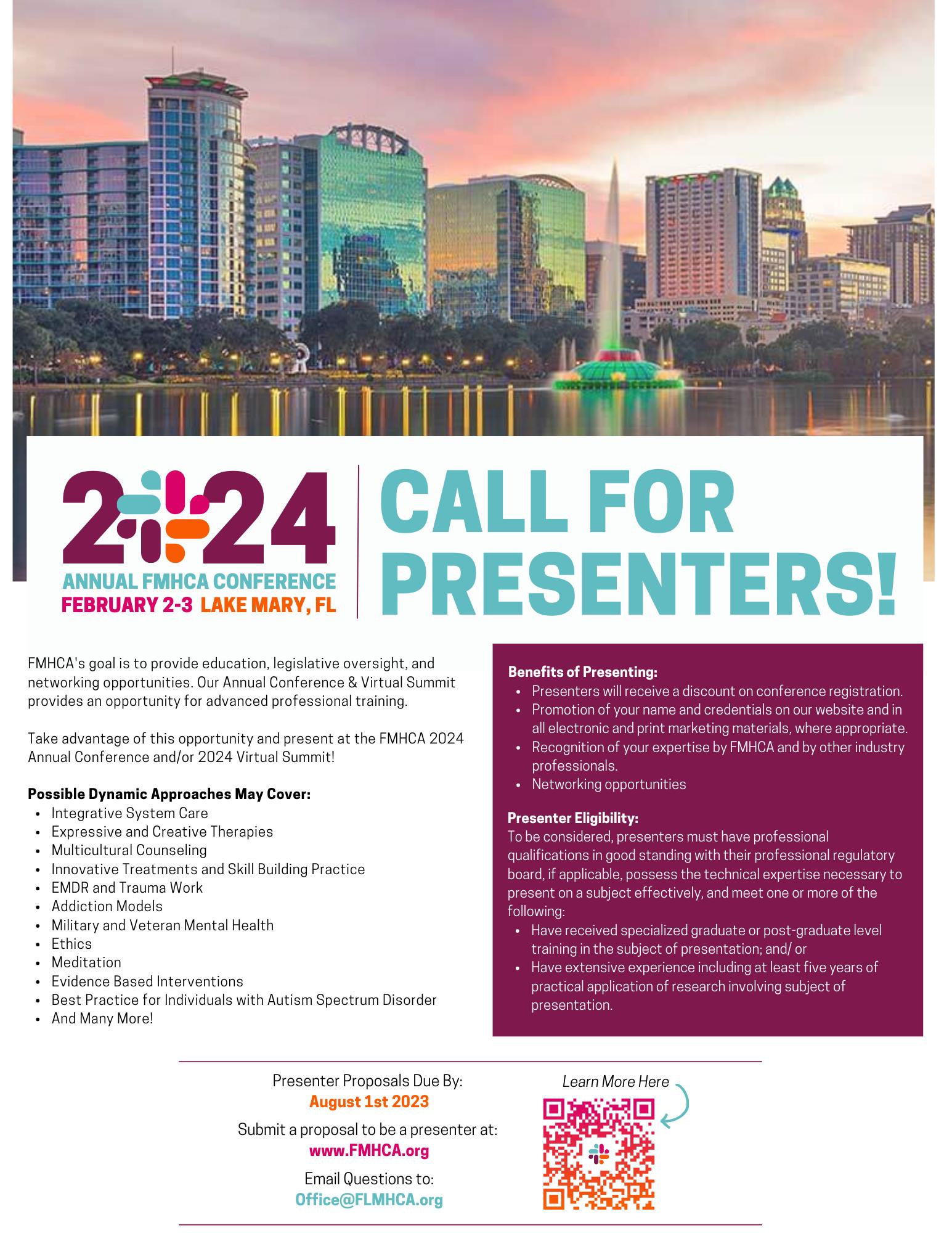
THE POWER OF CONNECTION
Friday
Morning Keynote Presented By:
LMHC 8:00 AM - 10:00 AM | 2 Clock Hours | Salon D&E
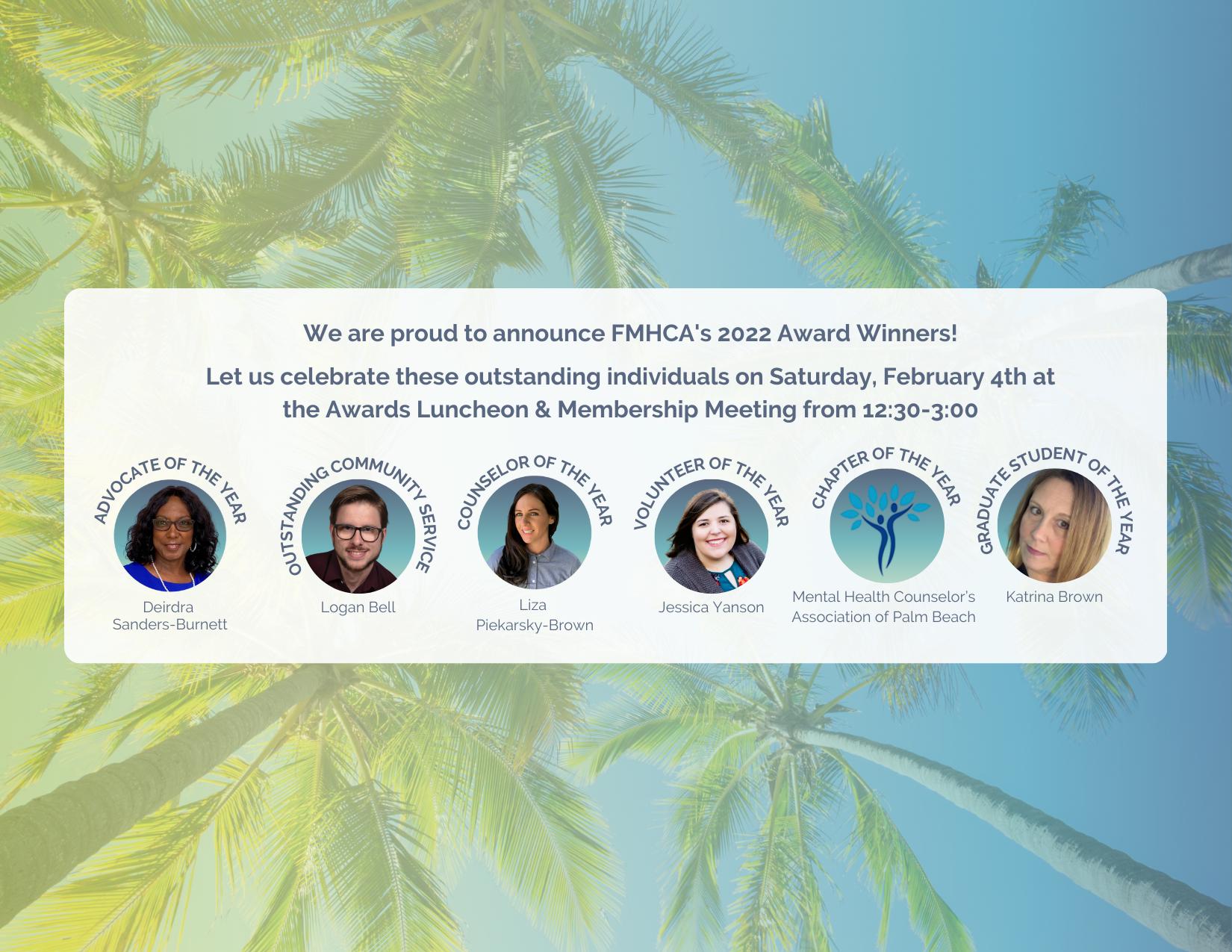
B.
Description: Connection is a part of our DNA Unfortunately, there are events that happen; or fail to happen, that affect our clients’ abilities to experience healthy relationships In this presentation, The Power of Connection, Sandra B Stanford will address the importance of the therapist’s role in helping clients heal from broken relationships and begin to enjoy the richness of connection with themselves and with others
Learning Objectives:
Describe honoring emotions in relation to embracing self and demonstrate with an exercise that supports this principle
Explain unhealthy belief systems and self-talk using the A-B-C model by learning to dispute and replace them with new thought patterns Describe the seven steps of the forgiveness process to facilitate connection with self and others
Explain the integral role of the therapist in establishing a connection with the client using emotionally responsive techniques Describe exercises, tools, and resources between client and therapist that can be utilized both inside and outside the clinical setting
Sandra B. Stanford has a heart for people who find themselves in hard situations. Because this passion, she earned her Master’s Degree in Psychological Counseling. Her work with clients is collaborative working alongside the client to help in the healing process. Sandra goal is to help clients recognize, define, and achieve growth and healing in their hearts an home. Sandra is an EMDRIA Approved Consultant and is certified in EMDR Therapy which powerful psychotherapy approach that has helped an estimated two million people of all ages relieve many
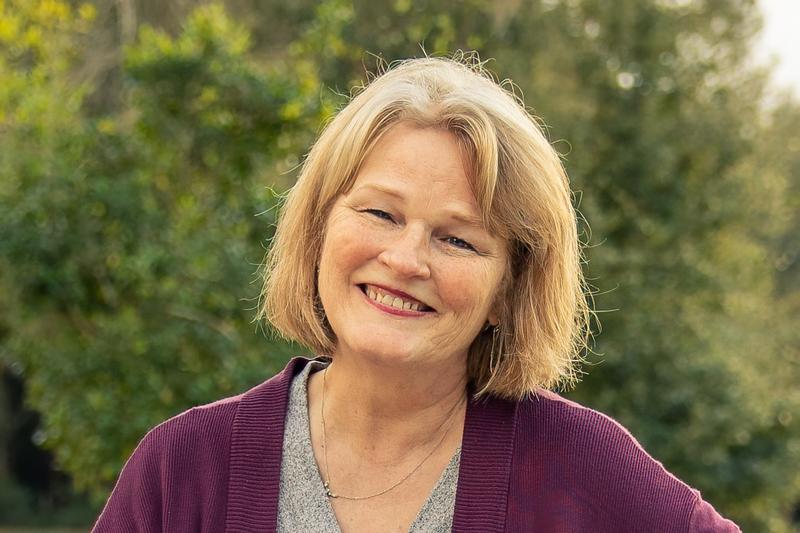 Sandra
Stanford,
Sandra
Stanford,
21
FRIDAY BREAKOUT SESSIONS
10:15 AM - 12:15 PM | 2 Clock Hours
SALONS A, B, & C
Topic: The Role of Yoga and Mindfulness in Mental Health
Presenter: Amanda Landry, LMHC, CAP, NCC
Description: During this presentation, we will discuss the benefits of incorporating yoga into therapeutic sessions. We will look at yoga therapy and how to help your clients use relaxation techniques to improve outcomes. We will discuss how to use yoga in your personal wellness plan to help prevent burnout. The end of the session will incorporate yoga stretches, specifically designed for therapists who sit all day.
Course Goals & Objectives:
Learn the basic principles of yoga therapy
Identify three mindfulness strategies to use with clients
Develop a personal relaxation plan to reduce burnout
SALONS G&H
Topic: The HEART Model: A Faith-Based Approach to Healing Complex Trauma
Presenter: Benjamin B Keyes, Ph D , Ed D , LMHC, NCC CCMHC,CMT
Description: Human trafficking for purposes of prostitution occurs on a global scale impacting almost every country in the world according to a study done by Calliber and Associates for the Department of Justice (2000) Physical, emotional, and sexual abuse is the norm for these victims, and the road to recovery often mimics survivors of more traditional sexual abuse and domestic violence norms (Calliber, 2000) Secular models have been formulated by many in the Dissociative field (Braun, 1988; Putnam, 1989; Ross 1989, 2000; Krakrauer, 2001; Briere, 2001; ), and to date, only one Faith- Based model has been put forth (Freison, 1985) which is anti-theoretical to current standards of care (International Society for the Study of Trauma and Dissociation, 1994) The HEART (Healing Emotional Affective Response to Treatment) Model (Keyes, 2008, 2009, 2010, and 2018) offers a systematic methodology utilizing the existing standards of care and interpreting a Faith-Based overlay consistent with secular practice This workshop will focus on the treatment needs of Survivors of Complex Trauma, and Trafficking who are mostly women and children and the specific
therapeutic issues in treatment The 3 phase model of treatment will be explored utilizing the 10 stages HEART model and demonstrating the Faith-Based integration within accepted secular parameters
Particular attention will focus on cognitive distortions both as they relate to the individual (Ross, 1991) and as they may form from a spiritual context Both secular and Faith - Based methodologies will be discussed, compared, and looked at from the standpoint of integration
Course Goals & Objectives:
To be able to apply spiritual integration concepts and techniques to existing and accepted counseling strategies in harmony to client needs as approach to being divergent because of a spiritual overlay
To increase awareness to the magnitude of the problem of Human Trafficking and understanding of some of the social and spiritual ramifications
To understand and synthesize secular model of treatment with Faith-Based components in order to utilize an integrated approach to therapy which is consistent with current standards of practice
SALON D
Topic: Identification & Treatment of Domestic Violence in Clinical Practice
Presenter: Kelly Dambra, MA, LMHC & Christel Brydegaard, MS, LMHC
Description: This presentation reviews the basic of domestic violence including definitions, various forms of abuse and risk factors that make victims more vulnerable Attendees will gain an understanding of how to identify victims of domestic violence by reviewing warning signs, recognizing intersection of violence, and appropriate questions to ask potential victims Case examples will be reviewed to assist providers in understanding how to apply what is taught in the training into their clinical practice
Attendees will review the barriers to victims reporting, potential trauma reactions, victims may experience, and relevant treatment options
Course Goals & Objectives:
Differentiate between the different types of abusive relationships and recognize the dynamics of DV and the impact on victims Identify the intersections between domestic violence & sexual violence Establish effective treatment options and safety
Topic: Understanding the Psychological Dangers of Pandemic Loneliness: Guiding Clients through Prolonged Isolation with Emotional Coping Skills and Relationship Connection
Presenter: C Dwight Bain, NCC, LMHC
Description: Loneliness and social isolation were listed as a behavioral epidemic by the World Health Organization before the pandemic The situation has worsened drastically with wave after wave of lock downs and governmental restrictions imposed to contain the spread of Covid Eighty percent of the U S adult population now report loneliness as a major factor at times in their life As loneliness builds, it can lead to low self-worth, inadequacies, negative emotions of resentment, bitterness, guilt, shame, interpersonal conflicts, job loss, poverty, weakened health or mental distress There are three types of loneliness common to humans: developmental loneliness, internal loneliness, and situational loneliness. Each of these types affect clients differently based on age, developmental stage, support system, and access to mental health care. All three were negatively affected by the pandemic. Holidays and traditions can intensify feelings of loneliness for those who are isolated or have lost loved ones. Disruption of traditional social gatherings, along with continual travel restrictions and working from home, leave many people feeling socially disconnected. The loss of time with friends, family, coworkers, and community is creating a new type of mental health challenge – Complicated Loneliness. Consider research from the National Institute of Mental Health, (NIMH), Health Resources and Service Administration, (HRSA) and the U.S. Census Bureau to understand how significantly loneliness has become a challenge to public health. (Data is prior to the pandemic, which has intensified the mental health challenges among all age groups, particularly children and seniors.) - Loneliness and social isolation can be as damaging to health as smoking 15 cigarettes a day - Social isolation was associated with a 50% percent increased risk of dementia - Two in five Americans report they feel their social relationships are not meaningful, and one in five say they feel lonely or socially isolated - Over 25 % of the U.S. population and 28 % of older adults - now live aloneAging adults who are socially isolated are at a higher
risk for depression - $6 7 billion in annual federal spending is attributable to social isolation among older adults - Poor social relationships were associated with a 29% increase in risk of coronary heart disease and a 32% rise in the risk of strokeSocial isolation significantly increases a person ’ s risk of premature death from all causes A risk that may rival those of smoking, obesity, and physical inactivity - Loneliness was associated with higher rates of depression, anxiety, and suicide Untreated loneliness can lead to serious physical and psychological health consequences It is essential for clinicians to identify the challenges associated with social isolation and pandemic related complicated loneliness to prevent mental health or behavioral health problems in the post-pandemic era
Course Goals & Objectives:
Identify the unique characteristics of pandemic loneliness and social isolation which were intensified by working from home, travel restrictions or lock downs. Understand the three primary types of loneliness and how they may intensify symptoms of anxiety, depression, cumulative stress, acute stress, or traumatic stress after an extended time of global crisis.
Describe factors that create social connection as a therapeutic form of intervention in creating support for those struggling with pandemic based loneliness and social isolation.
3:00 PM - 6:00 PM | 3 Clock Hours
SALONS G&H
Topic: Behavioral Healthcare Treatment: Assessment For and Meeting the Clinical Needs for Autism Presenter: Deja Gilbert, Ph.D., LMHC, LPC
Description: Autism Spectrum Disorder (ASD) is being diagnosed at astounding rates. Yet, while mental health and substance abuse providers and treatment centers have long seen individuals seeking care, diagnosed or undiagnosed ASD, most do not understand or are not trained and therefore lack the ability to identify or treat from a neurodiversified clinical approach. The therapeutic implications of not being able to identify and treat a neurodiverse individual can be damaging the the entire therapeutic process and the responsibility now lies on therapists and administrators to account for this growing population. This session aims to provide assessment
plan SALON
E
23
capability as well as clinical approaches to treating the co-occuring neurodiverse individual in a mental health or substance abuse primary setting
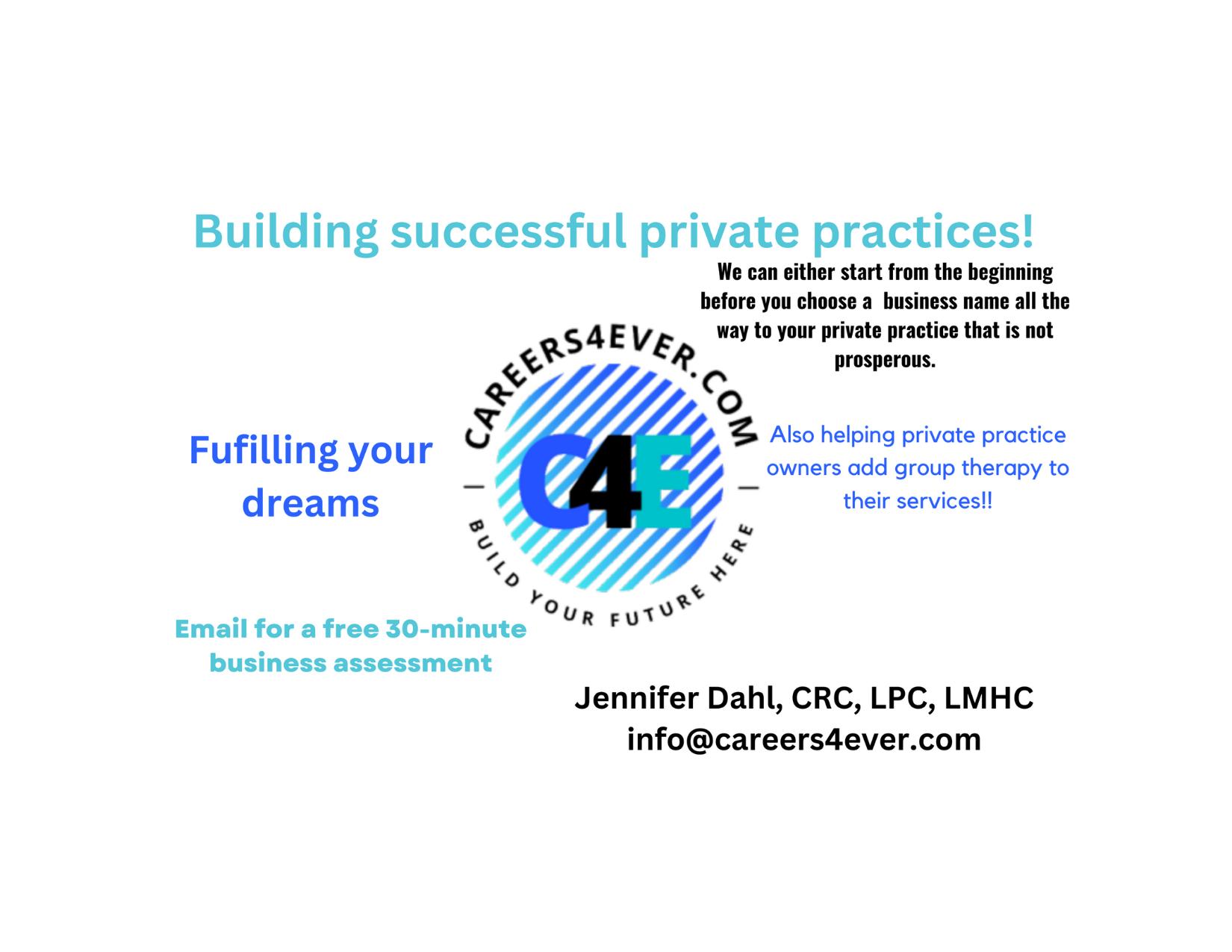
Course Goals & Objectives:
Apply and assess for Autism Spectrum Disorder and neurodiverse individuals seeking primary mental health or substance abuse treatment services
Analyze the impact of ASD and neurodiverse individuals needs on the therapeutic process List and implement tools at a facility or private practice setting to ensure better outcomes for ASD clients with co-occuring disorders
SALONS A, B, & C
Topic: Ethics in Clinical Practice: Promoting emotional intelligence in trauma and attachment treatment
Presenters: Lisa Compton, Ph D , LCSW, CTTS, CFE & Anita Kuhnley, Ph D , LPC
Description: There are certain client vulnerabilities associated with clients with trauma histories and intervening in an ethical way is crucial for both client wellness as well as growth. Attendees will learn how to utilize interventions which promote emotional intelligence and attachment security to facilitate client safety and stabilization. This workshop will be interactive and attendees will have the opportunity to collectively generate a toolkit including ethical considerations to bring back to their clinical practice.
Course Goals & Objectives:
Summarize the various ethical issues related to trauma and attachment therapy
Synthesize strategies for increasing emotional intelligence and ethical interventions
Develop a toolkit of emotional intelligence exercises for trauma and attachment treatment
ORCHID BALLROOM
Topic: Let's Get Experiential: Using Experiential Approaches/Activity-Based Learning in Therapy
Presenter: Ricardo Santiago, MS, MBA, LMHC, CCAT Description: Experiential activities greatly enrich counseling on many levels Experiential approaches involve: 1) Especially designed experiential activities designed to develop metaphors to facilitate deeper exploration of client challenges, elicit powerful emotions, and provide opportunity to practice coping skills & develop insight in a real-world environment, 2) in depth clinical processing with gentle yet powerful challenges This workshop will introduce the major concepts of experiential learning and activity-based learning and how these can be used to enhance clinical work with diverse populations, illustrate the clinical methodology, and will illustrate application to via demonstration of a number of activities. Workshop will be part-didactic and part-experiential/activitybased.
Course Goals & Objectives:
Gain knowledge of experiential approaches/activity-based learning Gain knowledge of the strategic use of experiential metaphors to enhance client learning Learn a variety of practical and simple experiential activities

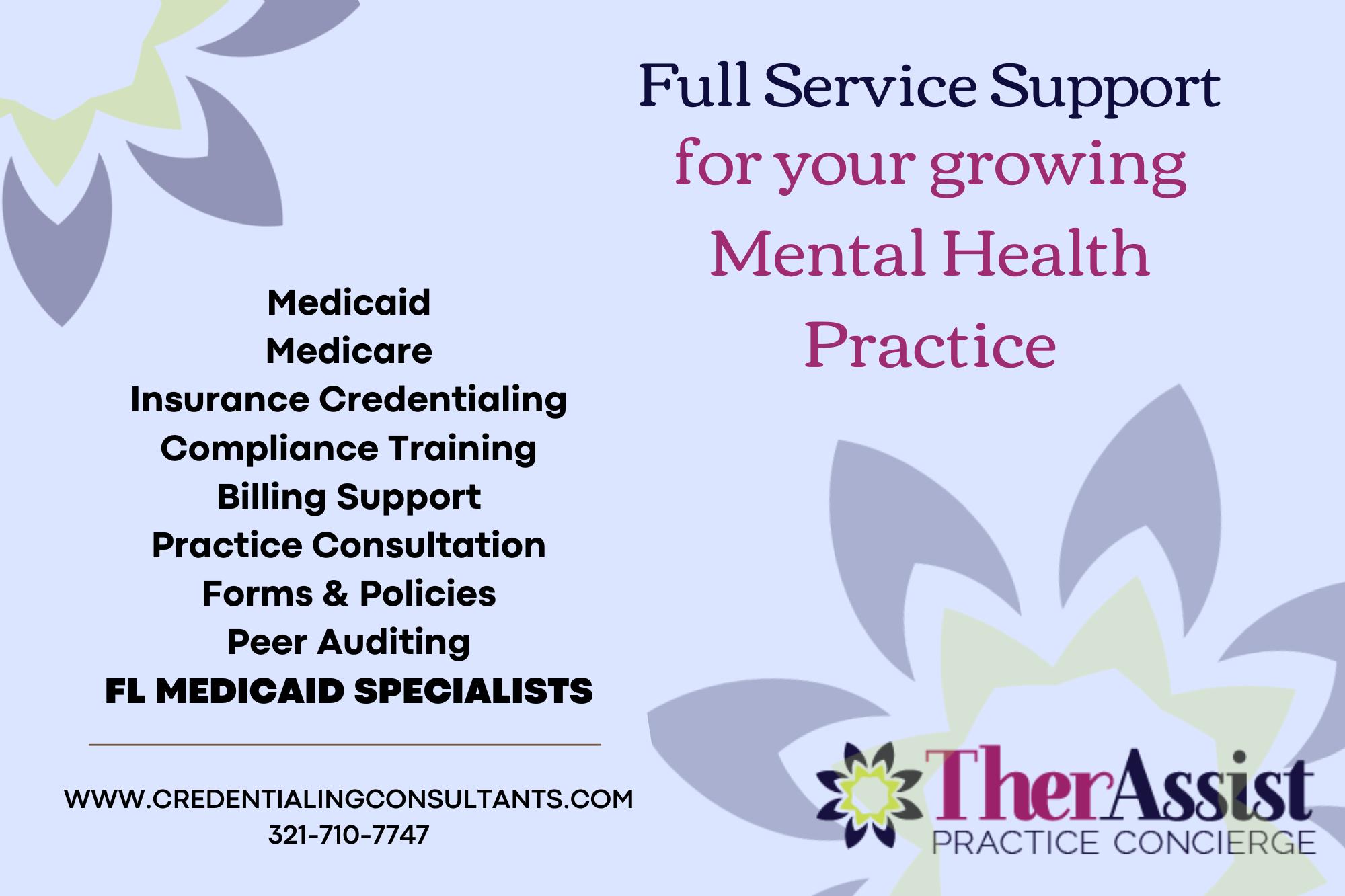
25
TRAUMA HEALING IN BIPOC CLIENTS: CONSIDERATIONS AND TOOLS
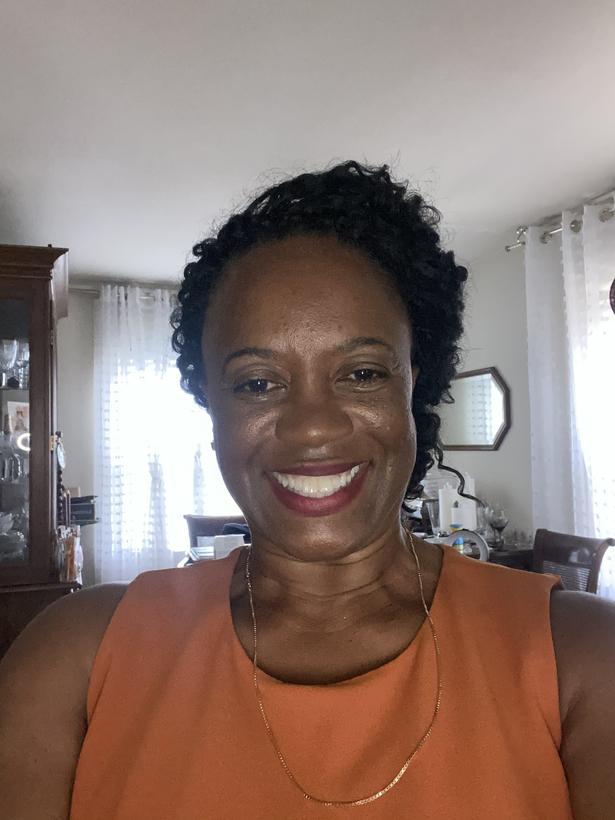
Friday Luncheon Keynote Presented By: Gladys Smith, Psy D , LPC, NCC, CCTPII 12:45 PM - 2:45 PM | 2 Clock Hours | Salon D&E
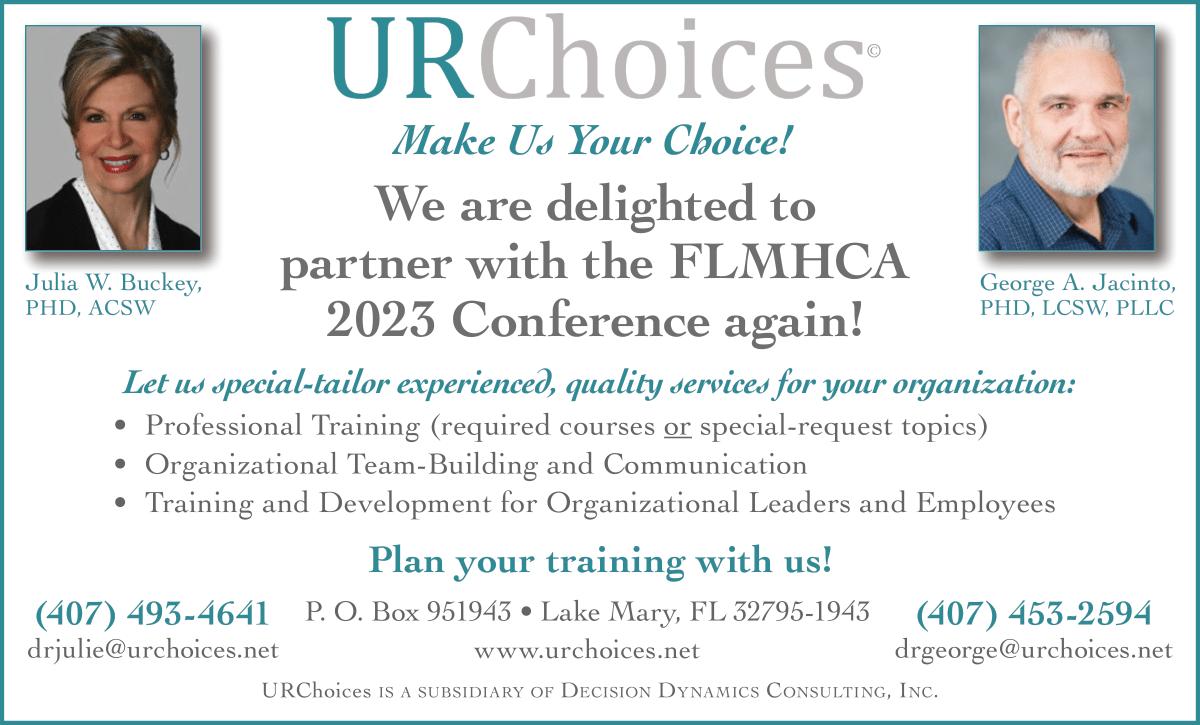
Description: A workshop that addresses racist psychotherapy through education, experiential exercise and introduction of 3 tools. This workshop is designed to assist all clinicians and participants the opportunity to inspect their views practices and learn new ways of viewing therapy from a BIPOC perspective. The 3 tools are designed to be used immediately in the counseling practice. The last half of the program allows the practitioner to experience self-evaluation and self-care.
Learning Objectives:
To educate the participants how racism, native invisibility, and racist psychotherapy show up in therapy room
To elevate Anti-racist psychotherapy practices
To Introduce 3 tools to use with BIPOC clients to facilitate healing
Dr. Smith is a Trauma therapist at Washington University, St. Louis School of Medicine She also an adjunct professor with Pepperdine University, Malibu, CA in the counseling and psychology program. Dr. Smith served 27 years in the United States Navy as a Hospital Corpsman and Substance Abuse Therapist. She has advanced training in EMDR, Somatic Experiencing. and Brainspotting. Dr. Smith is a First Responder Treatment provider and volunteer for the VA hospital, Red Cross, and Community Juvenile Justice Center in her community.

27
HYPNOTIC EVENING-
TAKING CARE OF TRANCE™
Friday Evening Keynote Presented By: Elvis Lester, LMHC, NCC, MAC, NBCFCH 6:00 PM - 9:00 PM | 3 Clock Hours | Salon D
Description: Join Elvis for a wonderful evening of Change & Trance! You will learn to create a response space inside for more creative & generative experience & access more Presence & Peace of Mind. Come Learn: “How You Do Trance” & Self-Hypnosis, How to Positively Alter Your Mental & Emotional States, How to use Hypnotic Phenomena such as Time Distortion, Age Progression & Hyperesthesia (Heightened Positive Sensation).
Learning Objectives:
Identify 5 Foundations of Hypnosis & how to integrate into your practice Identify & experience 5 Indicators of Trance
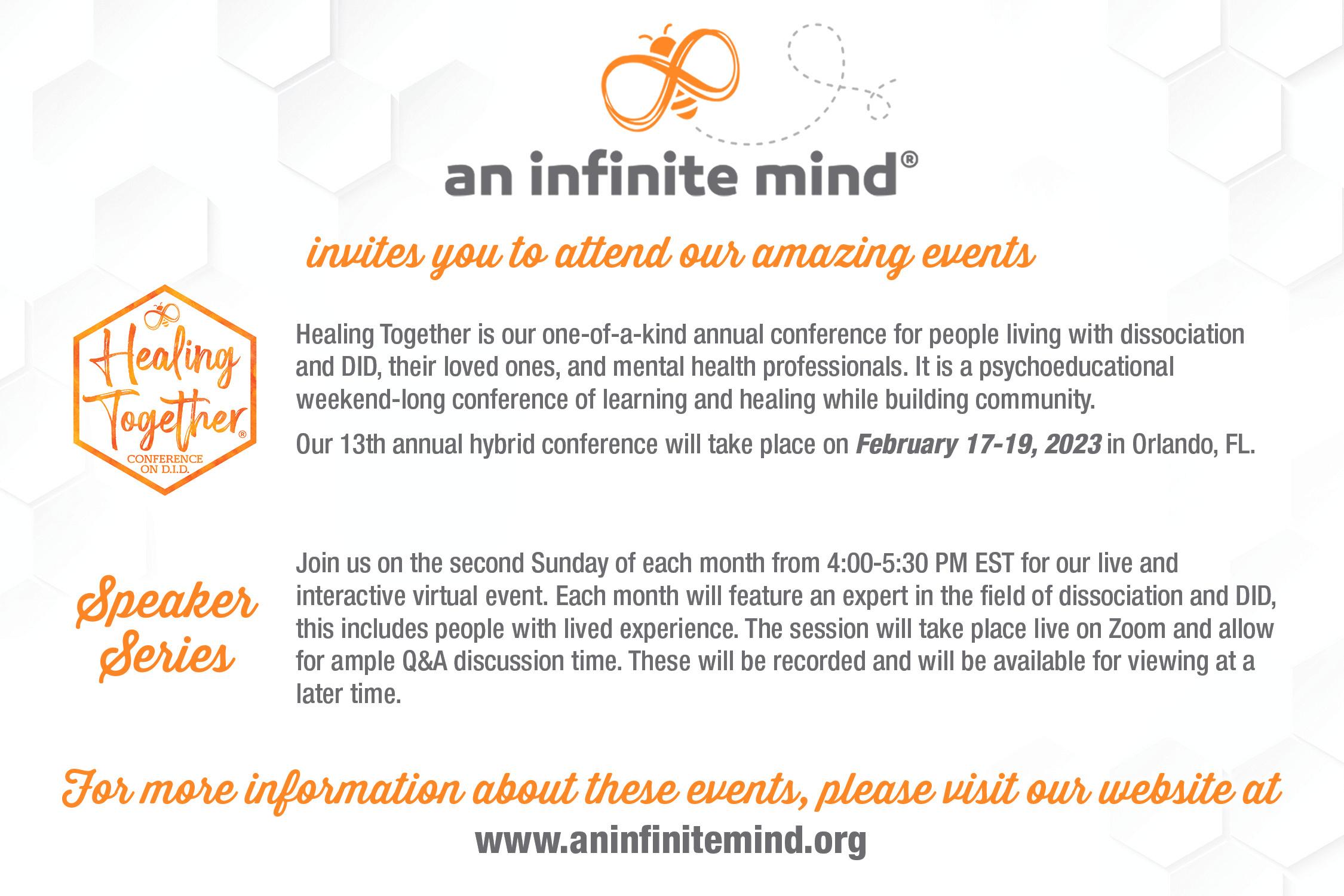
Learn & Experience 3 Rapid Trance Induction Techniques, 3 Trance Deepening Techniques & 3 Hypnotic Phenomena in “trance”
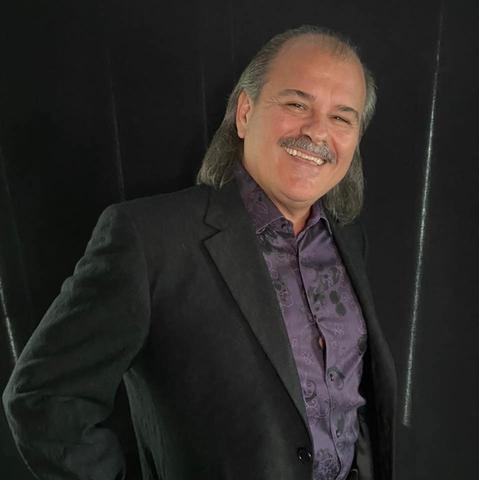
Learn & Experience how to reorient & awaken from a trance experience
Elvis is the President/Founder of Neurocise® Studios, a learning & performance company providing personal & professional development, modeling, training, coaching, counseling services & continuing education for LMHCs, LMFTs, LSCWs, Nurses, & Psychologists in the State of Florida Elvis is a Licensed Mental Health Counselor, Qualified Supervisor, Qualified Teacher of Hypnosis (DOH/MQA/491) & Licensed Master Trainer of NLP™ & Hypnosis He is creator & developer of Neurocise®, brain-based personal & professional evolution models/methods & Eye Movement Emergence™ techniques (EME – An Eye Movement Therapy) Elvis is Past President of Florida Mental Health Counselors Association & Past President of Suncoast Mental Health Counselors Association and the American Society of Training & Development (FL Chapter) & ISPI (International Society of Performance Improvement) FL Charter Chapter Web: www elvislester com
RESILIENCE REMIX: SELF-PRESERVATION STRATEGIES
Saturday Morning Keynote Presented By: Maureen Pollard, MSW, RSW
8:00 AM - 10:00 AM | 2 Clock Hours | Salons D&E
Description: This presentation will review the challenges that frontline professionals experience in high-stress, trauma-exposed environments, including compassion fatigue and burnout. A range of factors related to personal resilience will be explored, with a focus on practical strategies that can be incorporated in even the busiest schedule. Participants will be invited to engage in simple, personally relevant hands-on activities related to some of these strategies to anchor the theory.
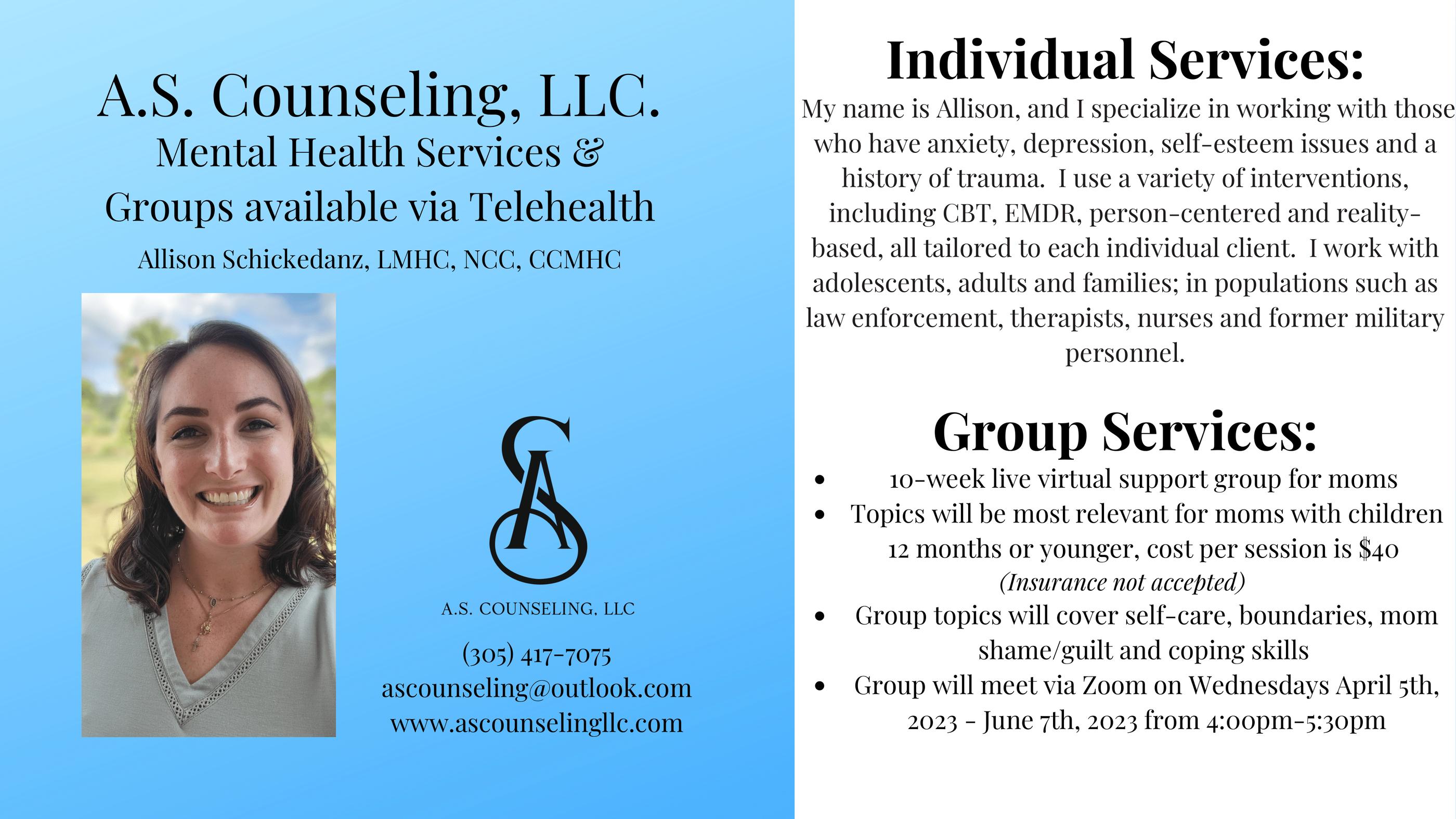
Learning Objectives:
Participants will be able to conduct a self assessment regarding their personal wellness Participants will be able to list a variety of self-preservation strategies that can help mitigate the impact of high-stress, trauma-exposed work Participants will be able to select specific strategies that are relevant to their own wellness planning
Maureen operates a group private practice in Ontario, Canada With 30 years of experience i the field, Maureen specializes in supporting people integrating grief and trauma experiences as well as supporting first responders and frontline professionals with resilience recovery through education, critical incident support, and wellness programming
Maureen is the author of The Twentieth Year: A Memoir of Miscarriage, Best Interests: A Nov and What I Wish for You, a book of affirmations. As part of her own self-preservation and resilience strategy Maureen also writes songs, sings, and plays a little guitar. Some of her so produced to raise funds and awareness for Canadian charities.
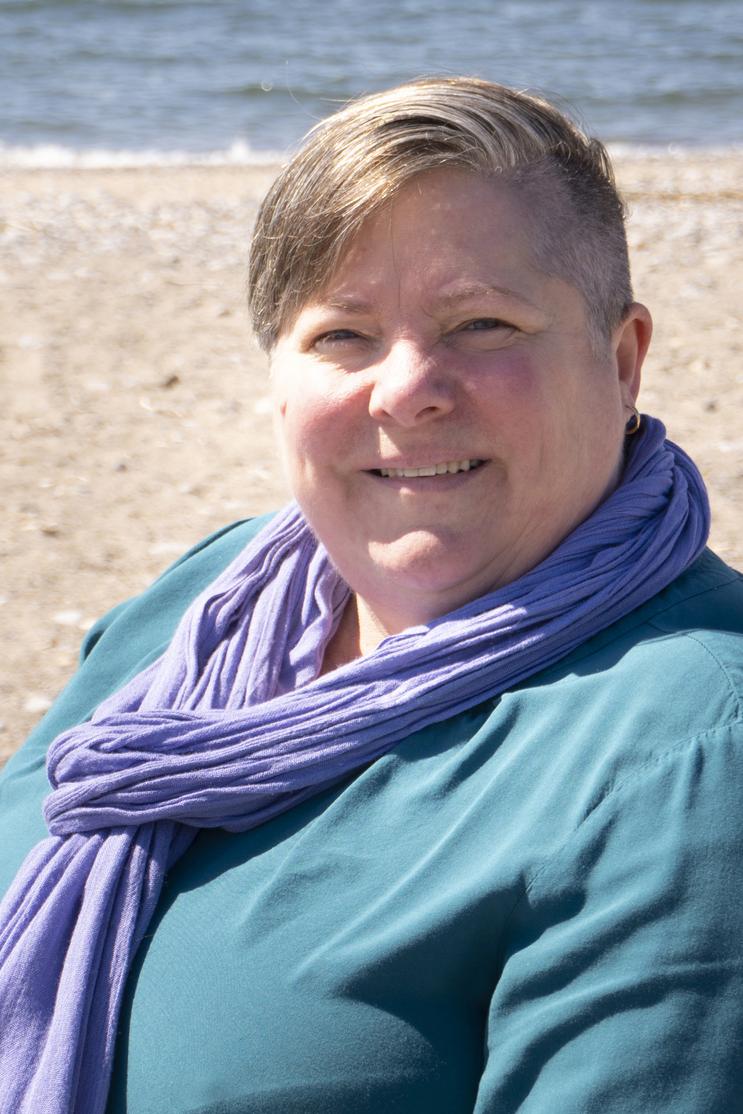
29
SATURDAY BREAKOUT SESSIONS
10:15 AM - 12:15 PM | 2 Clock Hours
SALONS A, B, & C
Topic: Integrating Play Therapy and EMDR
Presenter: Denise Folsom, LMHC, RPT, NCC
Description: Working with children who have experienced trauma can challenge the most experienced therapist. Integrating play therapy and EMDR can be the combination which can help the clinician provide developmentally appropriate and effective interventions. This workshop will help clinicians learn the basics of both models and how they can work together. Real life scenarios will be used as well as hands-on experiences.
*Participants will be eligible for 2 APT and EMDRIA Contact Hours
Course Goals & Objectives:
Participant will be able to explain how play therapy assist children with depression, anxiety and the processing of trauma
Participant will be able to identify the basic tenets of EMDR and how it is applied to play therapy
Participants will be able to name non-directive and directive ways to help children process traumatic events
SALONS G&H
Topic: Kintsugi to Super Heroes: Therapeutic Metaphors for Trauma Counseling
Presenters: Kathie Erwin, Ed D , LMHC, NCC, NCGC & Kelly Erwin, Certified Field Traumatologist
Description: Discover how broken bowls, rocks, sand, emojis and characters can help clients connect with and restore the shattered self Examples of these approaches are shown with suggestions for integration within a variety of theoretical orientations
Course Goals & Objectives:
Identify connections between theoretical constructs for Trauma Counseling and Interactive approaches
Demonstrate use of interactive techniques in Trauma Counseling
Evaluate options to incorporate interactive techniques within the treatment plan
SALON D
Topic: Treating Domestic Violence: A Practical Application
Presenter: Victoria Siegal, MS, LMHC, LPC
Description: This course is designed to expand a
clinician’s skills in working with those that have experienced domestic violence In addition to examining an overview of domestic violence, clinicians will explore various assessments to use in session, helpful survivor-centered documentation strategies, and create inclusive safety plans
Participants will explore how to utilize these various strategies when working with diverse populations Course Goals & Objectives:
Define domestic violence and identify types of abuse, patterns of behavior, and risk factors associated with DV
Assess trauma reactions, construct safety plans, and review available resources
Examine survivor-centered treatment modalities and language for documentation
SALON E
Topic: Overview of Sex Therapy and Diagnosis of Sexual Dysfunction & Disorders
Presenters: Richard M Siegel, LMHC, CST and Rachel Needle, Psy D , CST
Description: This session by two renowned sex therapy trainers presents a brief review of several models of human sexual response, from Masters & Johnson through the 21st Century, a description of what sex therapists are and do, and an overview of DSM-5 and other sexual dysfunction and disorders Course Goals & Objectives:
Describe the evolution of our understanding of human sexual response, via several proposed models
Describe the clinical specialty of sex therapy and the physical, psychological, relational, & intergenerational aspects of assessing sexual complaints
Describe the clinical diagnostic criteria of at least five (5) DSM-listed Psychosexual Disorders
3:00 PM - 6:00 PM | 3 Clock Hours
SALONS A, B, & C
Topic: “Step it Up” Telehealth: 2023 Update on Standards and Clinical Interventions
Presenter: Aaron Norton, PhD, LMHC, LMFT, MCAP, CRC
Description: Most counselors have been providing telehealth for about 3 years and have the basics down. But who wants to have just a basic proficiency in telehealth when instead you can harness unique
benefits that telehealth has to offer in the treatment of a wide variety of problems and concerns? There are some challenges, problems, and fears that clients cannot go around, under, or over and must instead go through, and telehealth offers a unique and safe modality for doing so In this session, counselors will learn about universal telehealth "best practices" and will then explore several specific telehealth inteventions, including web-based exposure therapies, graphic timelines for trauma, relationship autopsies, integrative art therapies, and more
Course Goals & Objectives:
Apply a set of universal ethical guidelines for telehealth
Use screensharing for exposure therapy exercises Provide experiential interventions for trauma, phobias, and self-deprecation in a telehealth environment
SALONS G&H
Topic: Biases to Best Practices: Ethical Considerations
When Counseling Same-Sex Couples
Presenter: Maria Giuliana, LMHC
Description: Dr. Gottman and his colleagues conducted a twelve-year study of same-sex couples to learn what makes same-sex relationships succeed or fail. This workshop will highlight the strengths and challenges unique to same-sex couples and illustrate the theory behind Gottman's Sound Relationship House. Through interactive discussions and activities, participants will explore inclusivity as an action paradigm and assess ethical considerations within their own practice. This workshop delivers researchbacked techniques clinicians can immediately incorporate into their work with same-sex couples.
Course Goals & Objectives:
Attendees will be able to implement an ethical footprint within their own practice that fosters diversity.
Attendees will be able to describe couple dynamics illustrated by Gottman’s research related to similarities and differences between straight and same-sex couples.

Attendees will be able to integrate the basic tenants of the Sound Relationship House as an effective intervention for working with same-sex couples.
ORCHID BALLROOM
Topic: DID– Not so Rare, Not so Simple
Presenter: Rhett Brandt, Ph.D., LMHC
Description: This presentation will help attendees to
better understand the realm of treatment for clients with Dissociative Identity Disorder (DID) We will explore various ways to help clients in this situation to get the most out of therapy We will also discuss various ways to conduct treatment which will help to support your clients in their isolation and seek to build better helping communities

Recent studies have found a much higher prevalence of DID and dissociative symptoms than previously known, up to 10% of the client population. Many clients diagnosed with DID report feelings of isolation and are unaware that others are experiencing the same types of symptoms Using a number of different approaches and strategies, an effective model rooted in Internal Family Systems theory and eye movement will be discussed The presenter will share what worked well and what did not so that attendees can better understand the process of working with this type of client
Course Goals & Objectives:
Attendees will leave this training with a better understanding of DID especially as it relates to treatment, and have some practical tools to use with this population
Attendees will be able to identify and analyze signs that the clients that they are seeing have an operating dissociative process
Attendees will learn to apply various methods to their treatment to ensure better diagnosis and
The Florida Menta Counselors Associ is a 501(c)(3) non-p organization that dedicated to mee the needs of Clinic Mental Health Counselors in each of their profession through intentional and strength-based advocacy, networking, accessible professional development, and legislative efforts. Contribute to our mission by texting FMHCA to 44-321 Donations are secure and seamless.
31
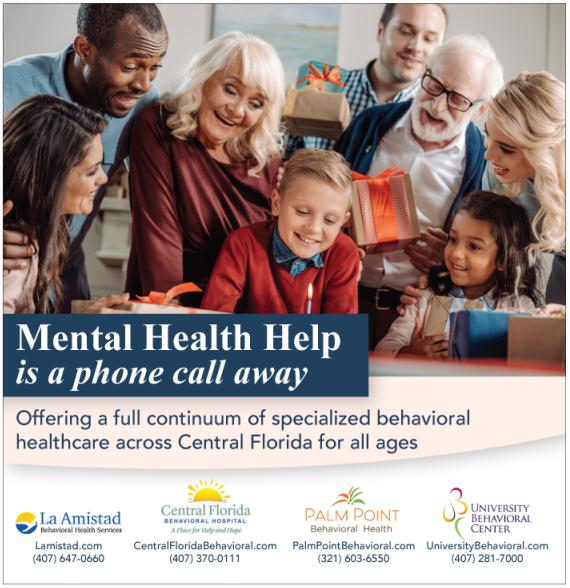

AWARDS LUNCHEON, ANNUAL MEMBERSHIP MEETING, AND LEGISLATIVE UPDATE
12:30 PM - 3:00 PM | 3 Clock Hours | Salons D&E
Saturday Luncheon Keynote Presented


By:
Laura Peddie Bravo, LMHC, NCC, FMHCA President
Corinne Mixon, DPL, FMHCA Lobbyist
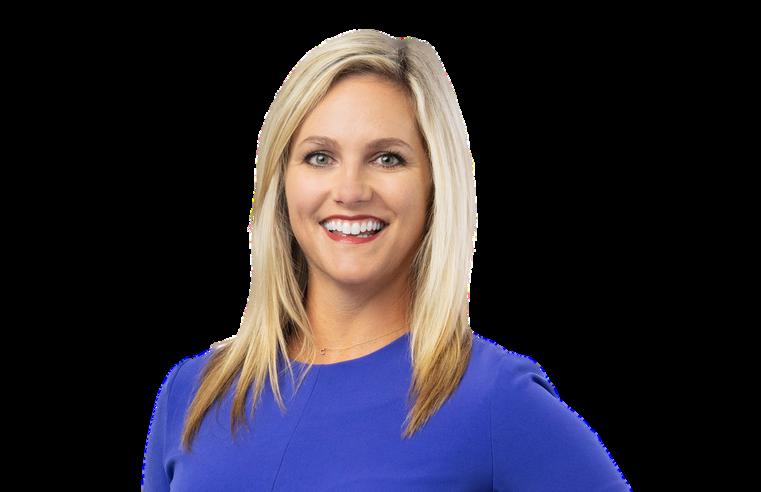


Michael Holler, LMHC, NCC, CCMHC, FMHCA Parliamentarian Kathie Erwin, Ed D , NCC, NCGC, FMHCA President- Elect Fredrick Dombrowski, Ph D , AMHCA President
Membership Meeting Description: Topics covered will include: a review of FMHCA's accomplishments from 2022, the continuing importance of belonging to (and serving in) our professional associations, goals & objectives for FMHCA for 2023 and beyond.
Learning Objectives:
Identify at least three reasons it is important to participate in our professional associations
Identify at least three goals for FMHCA for 2023
Learn about FMHCA's Legislative Goals for 2023
Legislative Update Description: The Florida Legislature is made up of individuals that come from varied professional backgrounds If these legislators are not educated on the LMHC profession, its professional practice climate may become threatened Through legislative and grassroots lobbying, we seek to provide much-needed education to Florida's elected officials Corinne will explain what lobbying is, why it is important and how LMHCs can become their own lobbyists Additionally, Corinne will discuss the interactions between statewide and federal policy and how Florida’s LMHCs can affect change in Washington Finally, Corinne will discuss the current state of LMHC practice in Florida, bills that may affect LMHCs and how mental health counselors can work with their State Representatives and Senators to enhance their legislative platform
Learning Objectives:
Grassroots Advocacy
Florida’s State legislative process
Intersection of elections and policy making
Interactions between state and federal policy
Legislative topics that may be important to LMHCs What to expect of Florida’s behavioral health ecosystem in the coming years
Laura Peddie- Bravo
Dr Kathie Erwin
Dr Fredrick Dombroski
Corinne Mixon
Michael Holler
33
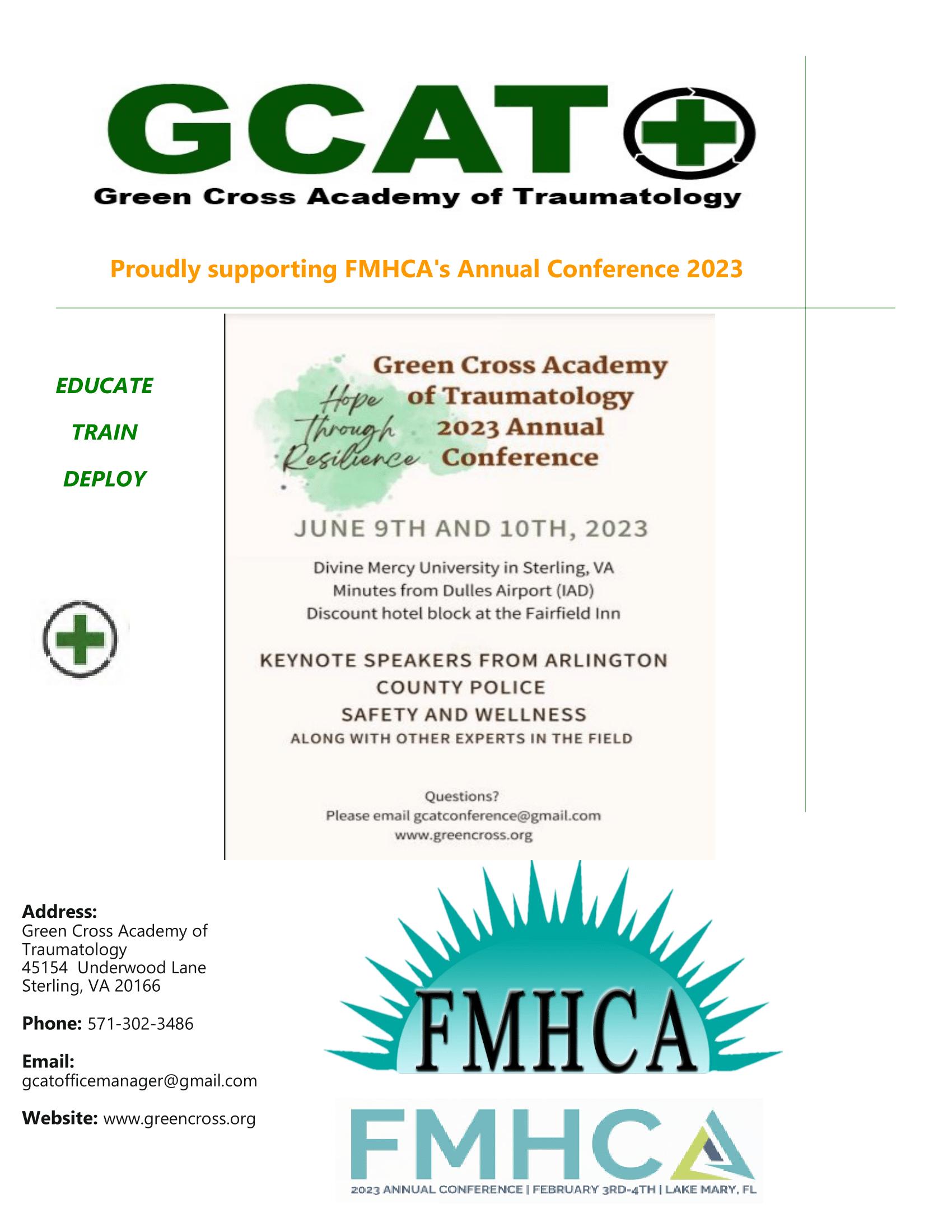
ANNUAL FMHCA CONFERENCE SPONSORS
PLATINUM CONFERENCE BAG SPONSOR: CPH & Associates
GOLD LANYARD SPONSOR: Bridges International
SILVER LUNCHEON SPONSORS: FSU College of Medicine Neuro Behavioral Hospitals
BREAKFAST SPONSORS: Bruce Law Firm, PA Pass the NCMHCE
REFRESHMENT SPONSORS: Acadia Healthcare Centurion Health
WIFI SPONSOR: Tobacco Free Florida
AV SPONSORS: Central Florida Behavioral Hospital Harmony Hills Lakewood Center
Modern Sex Therapy Institutes Origins Behavioral Healthcare Palm Point Behavioral Health
STATIONARY SPONSOR: TherAssist Practice Concierge
ADVERTISING SPONSORS: An Infinite Mind A.S. Counseling, LLC Careers4ever LLC
UR Choices
EXHIBITOR TABLE SPONSORS:
BeWell Rehabilitation and Counseling Group, LLC Cotler Healthcare
Cumberland Heights GEM Art Studios
Green Cross Academy for Traumatology Hazelden Betty Ford Hillside Atlanta
International Institute of Clinical Sexology La Amistad Behavioral Health Services Lenyosys Mosaic Counseling of Florida
NAMI of Greater Orlando National Board of Forensic Evaluators
Neurocise Studios
North Tampa Behavioral Health Palm Beach Atlantic University Orlando Campus Palm Shores Behavioral Health Center
Quiet Elegance Jewelry
Retreat Behavioral Health The Beachcomber The Renfrew Center
UF Health Florida Recovery Center University Behavioral Center Youth Opportunity
VIRTUAL SUMMIT SPONSORS: Florida Acupuncture and Counseling Inc

YOU
THANK
2023
224 ANNUALFMHCACONFERENCE FEBRUARY3-4LAKEMARY,FL REGISTER NOW AS A 2024 SPONSOR AT A REDUCED RATE BY VISITING SALON F OR WWW.FMHCA.ORG REDUCED RATE ONLY AVAILABLE BETWEEN 2/2-2/4 35
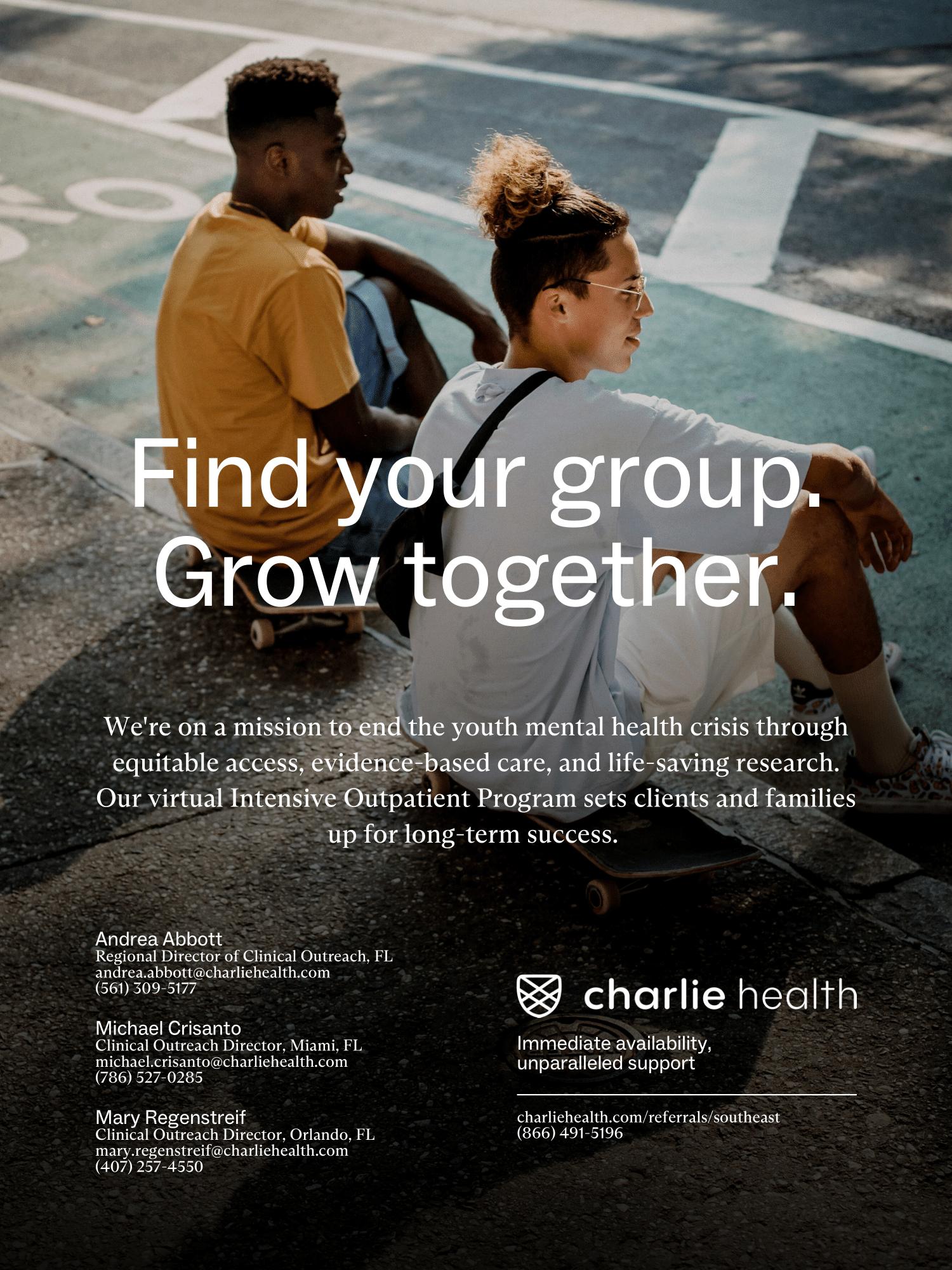








































 Sandra
Stanford,
Sandra
Stanford,

















